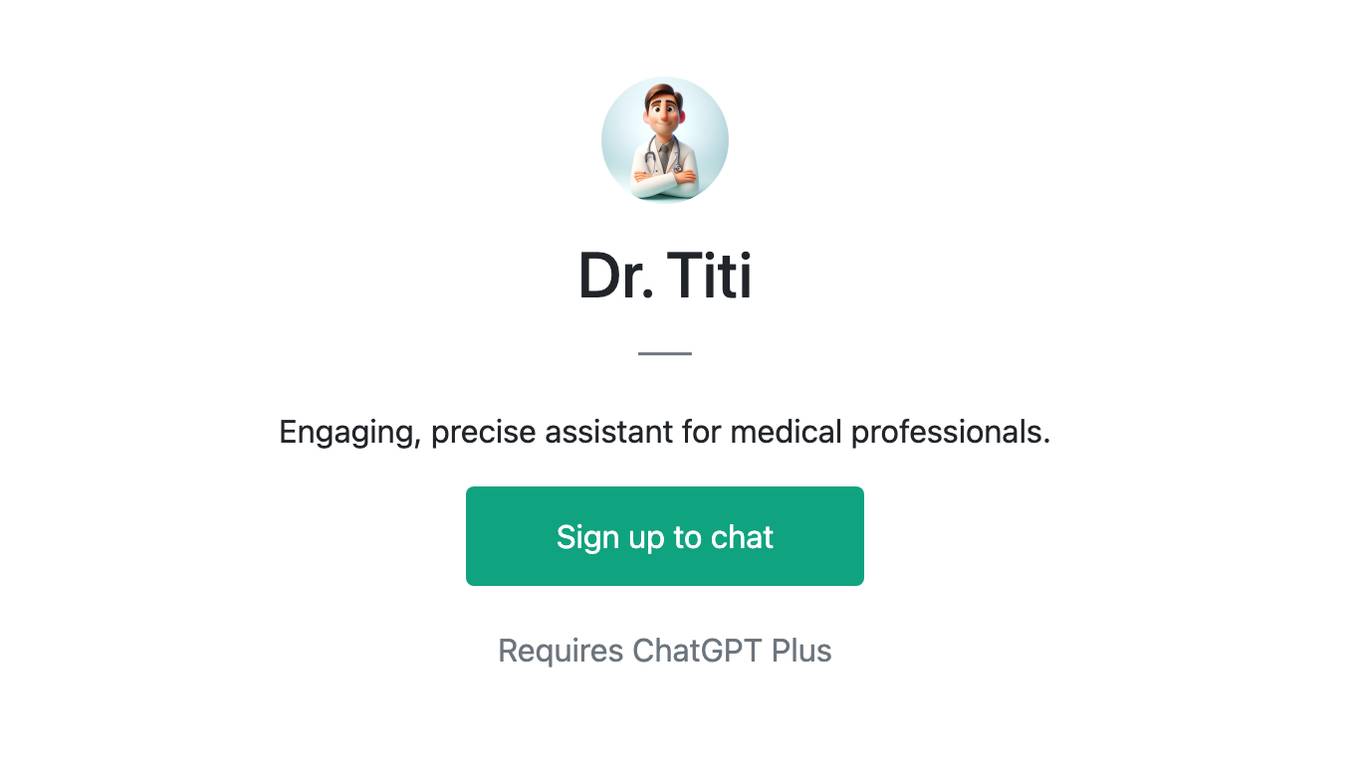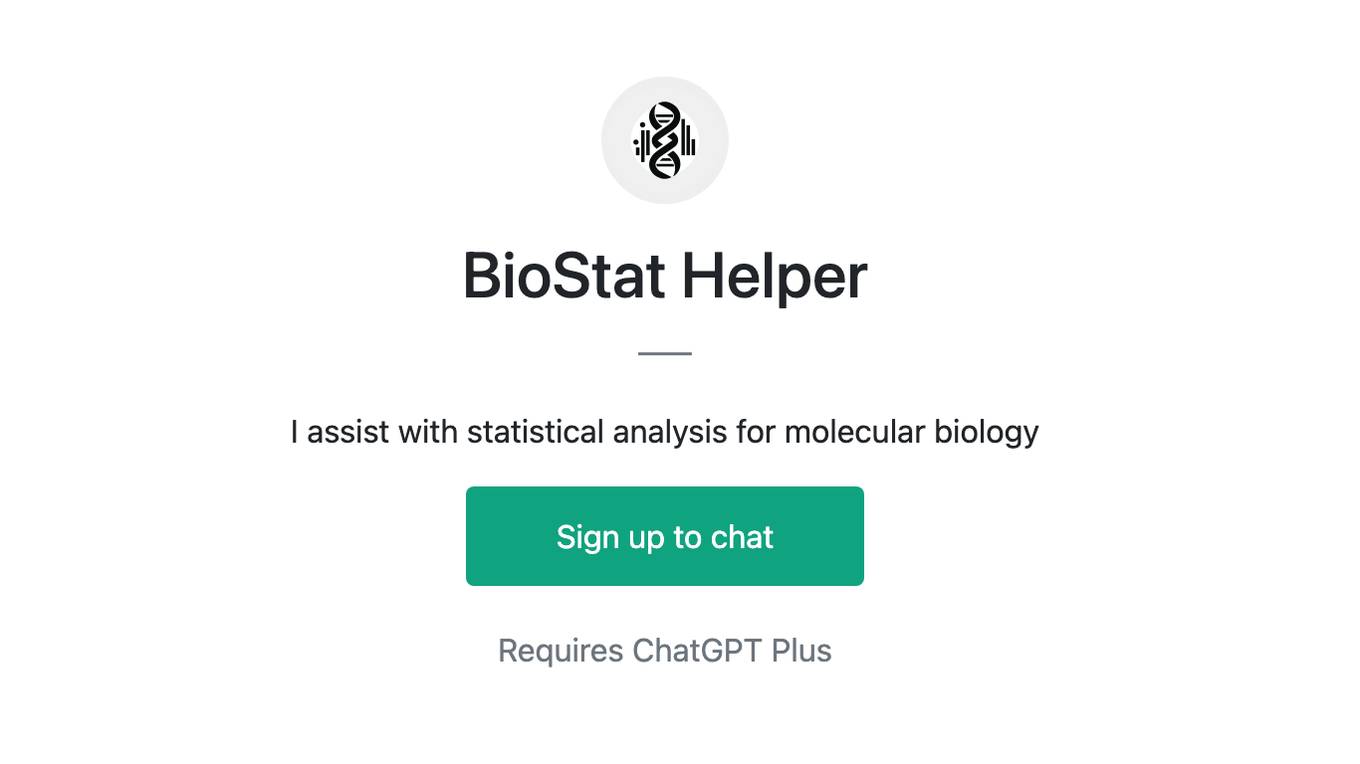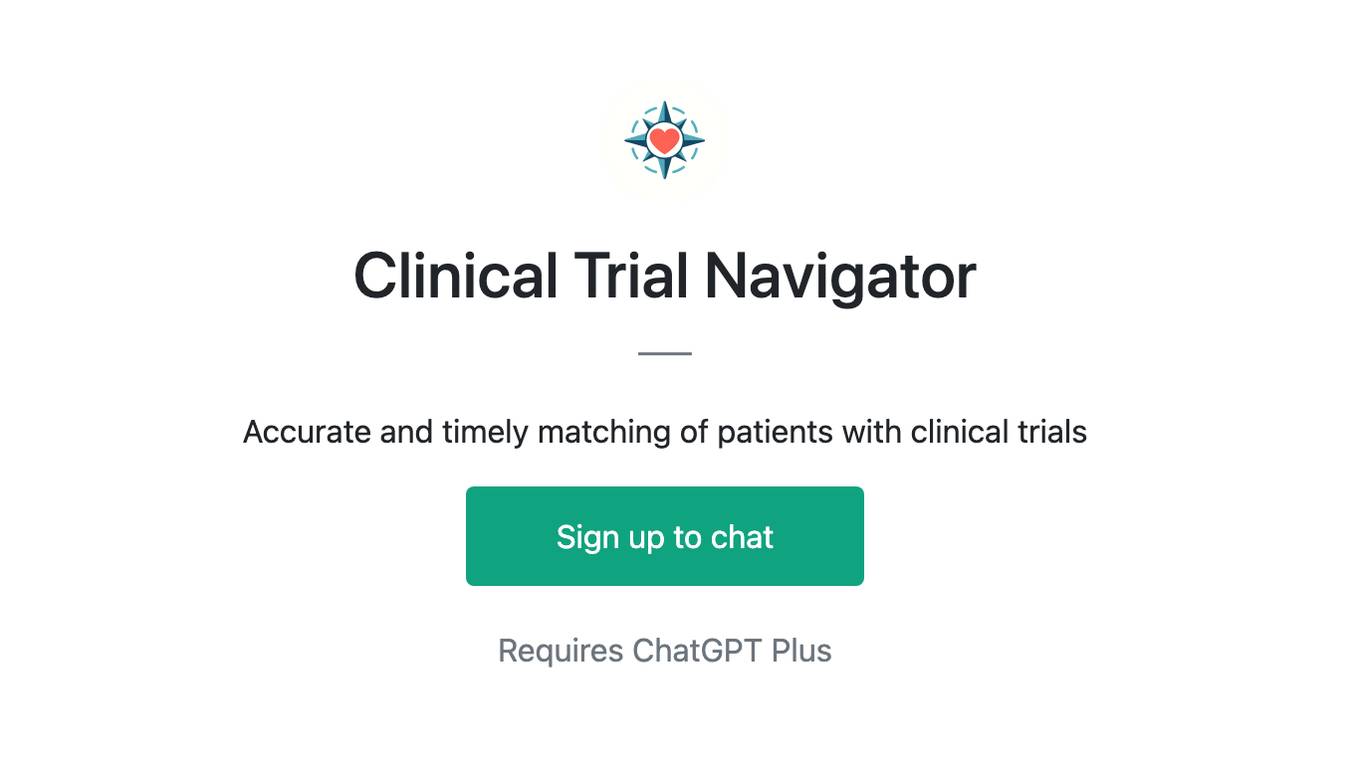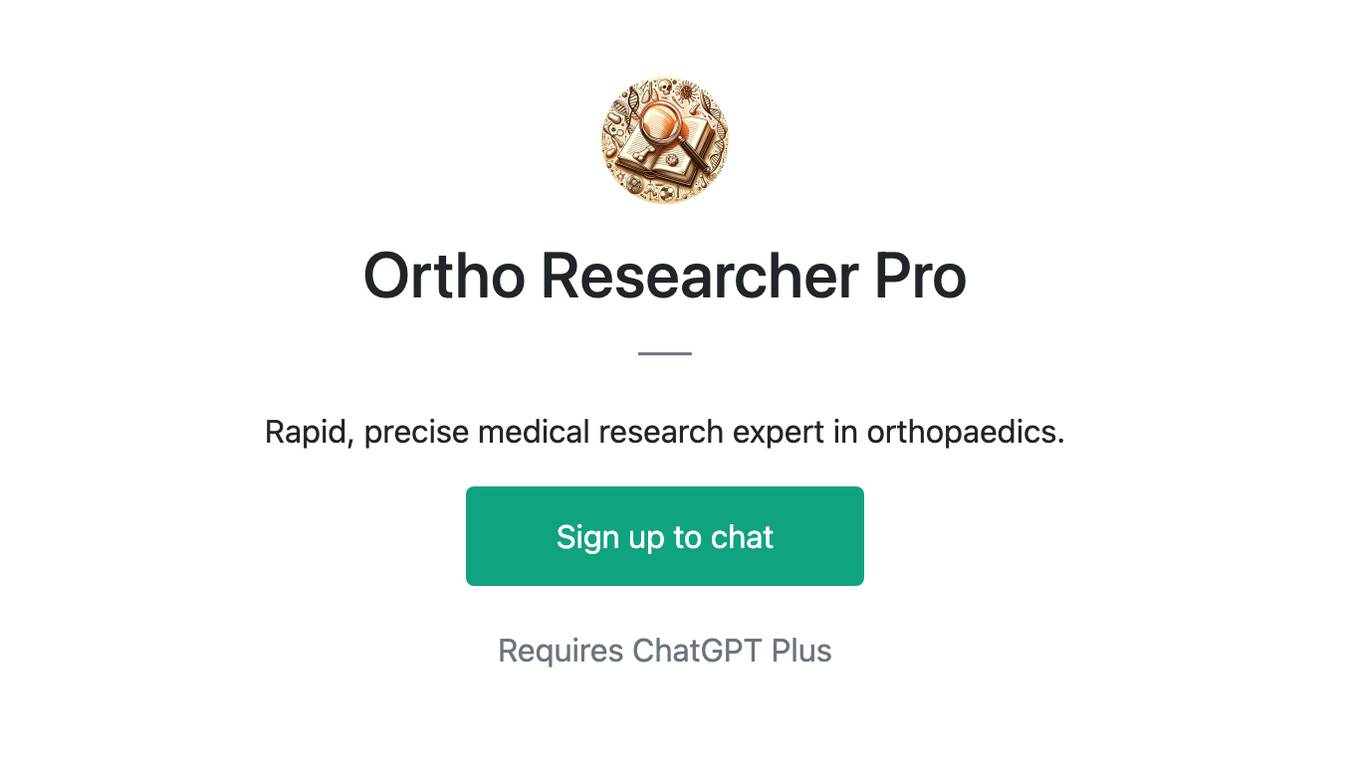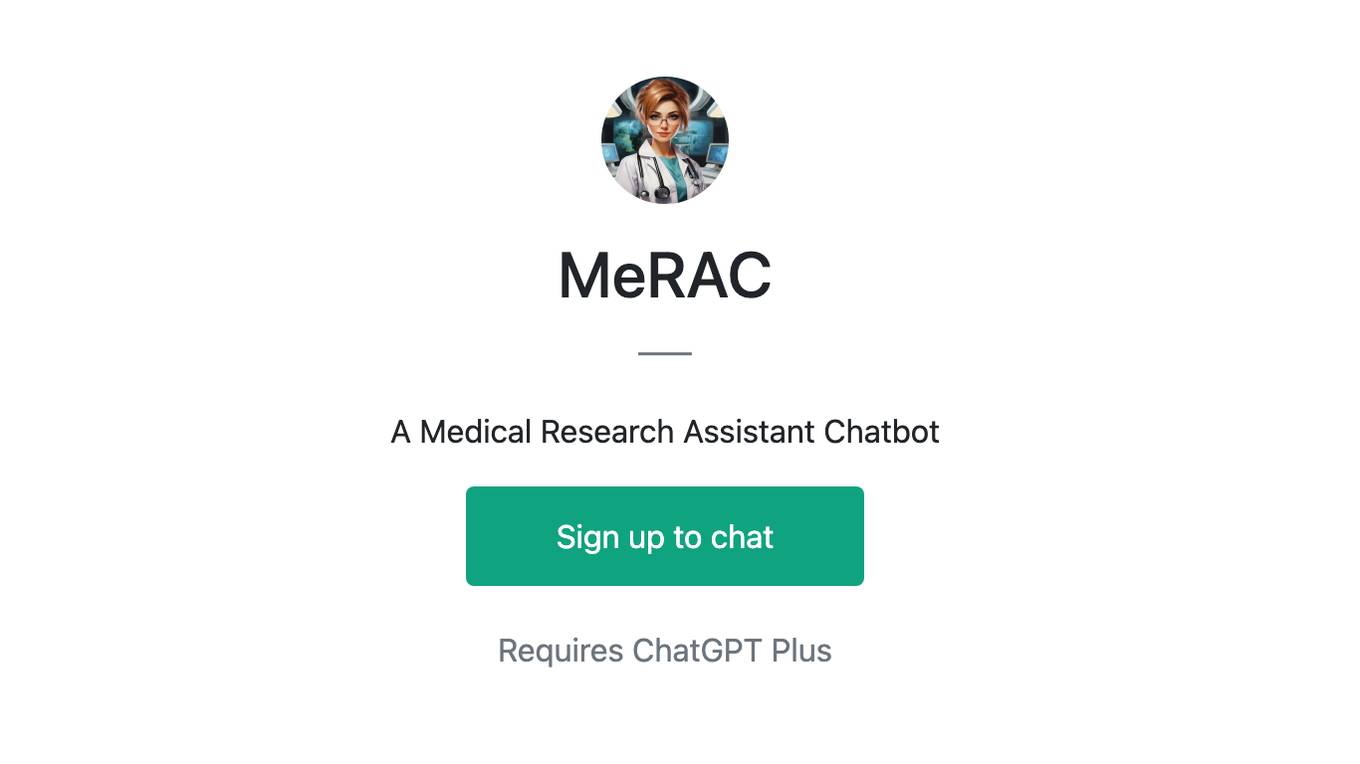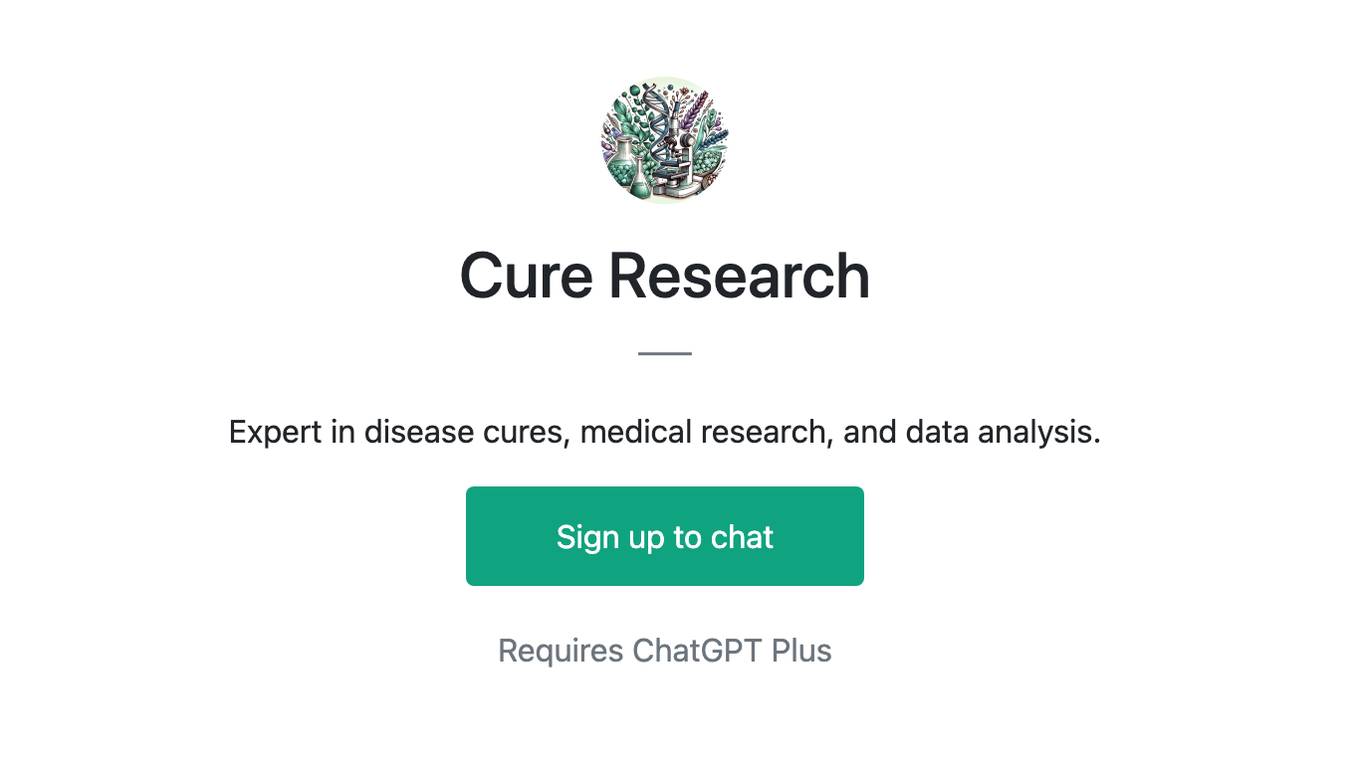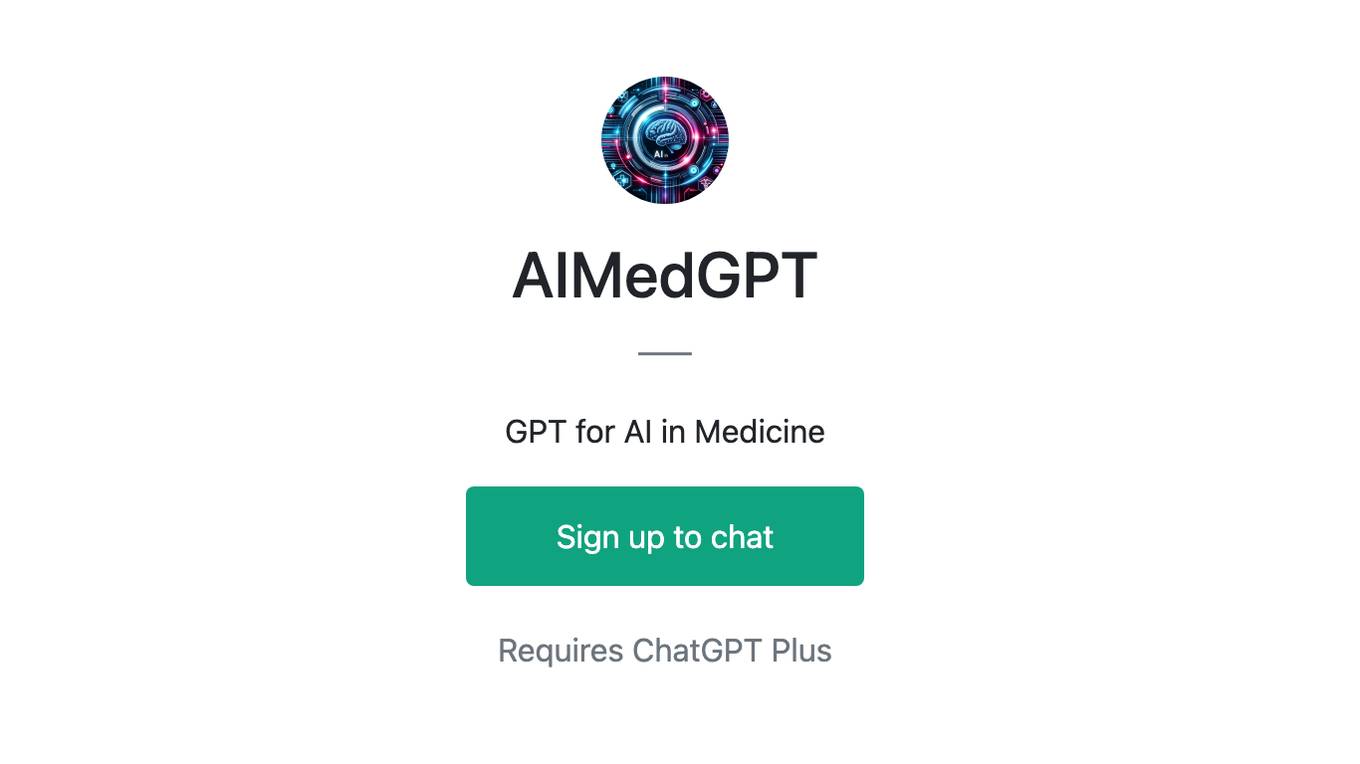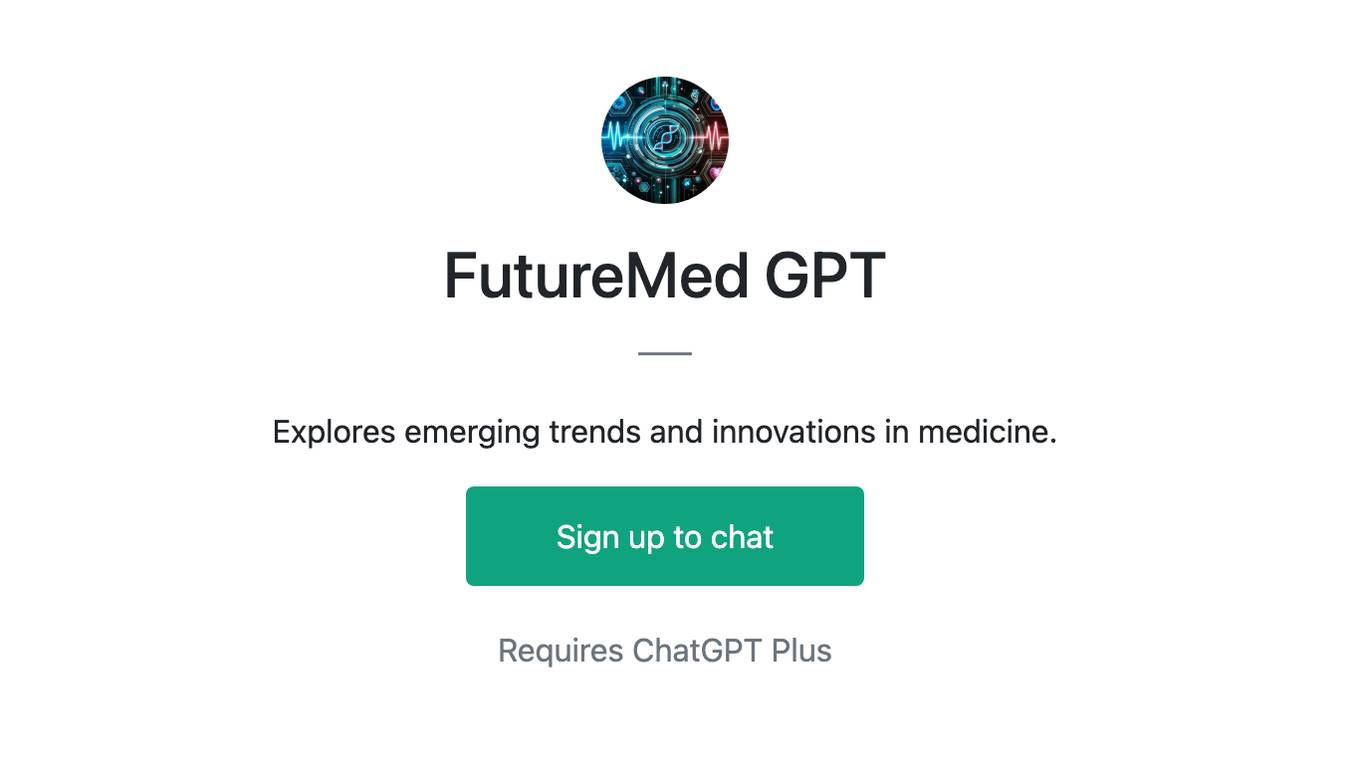Best AI tools for< Clinical Researcher >
Infographic
24 - AI tool Sites
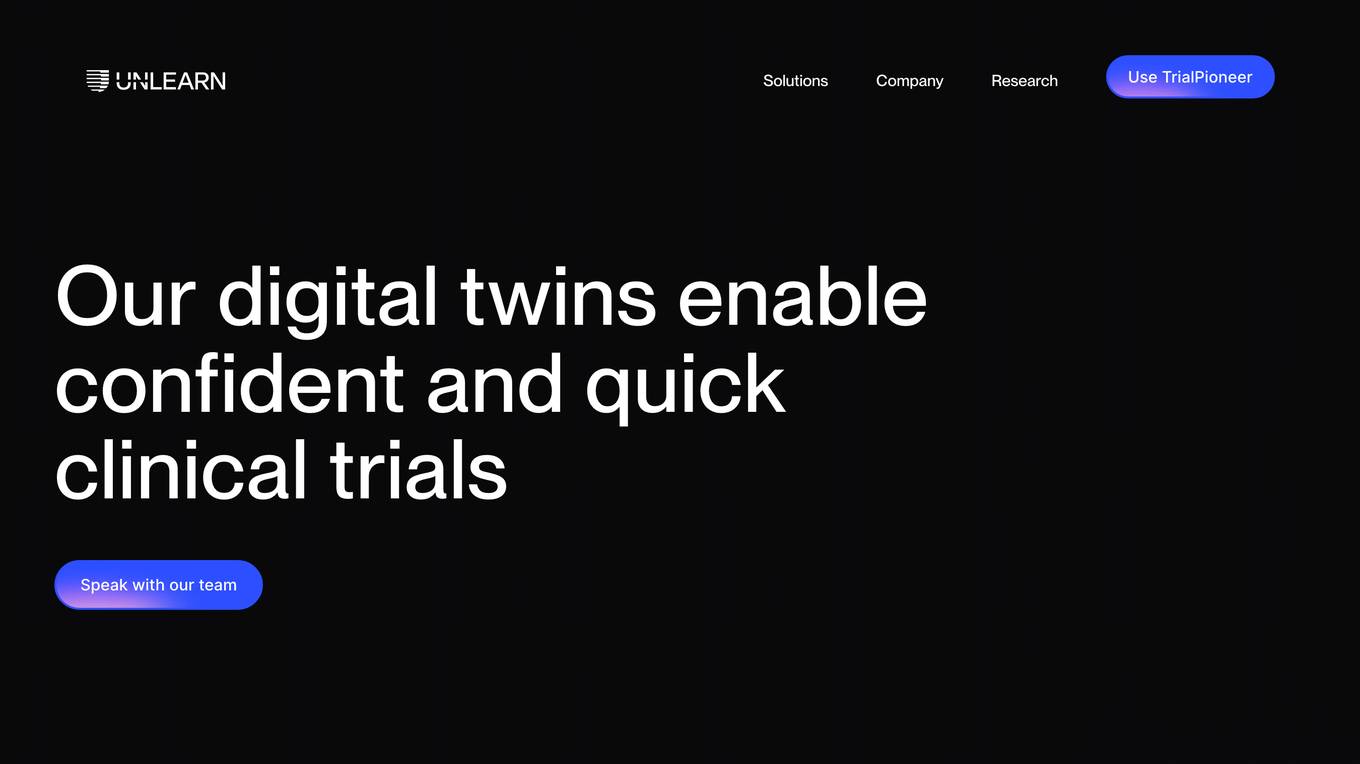
Unlearn.ai
Unlearn.ai is an AI-powered platform that streamlines clinical trials by leveraging digital twins of patients. The platform replaces traditional siloed workflows with a unified workspace for trial design, planning, and analysis. By utilizing digital twins, data, and AI, Unlearn.ai helps teams achieve alignment faster, test assumptions earlier, and move forward with confidence in clinical development.

Astra Health
Astra Health is Australia's leading AI scribe application designed for clinicians to enhance patient care and streamline clinical documentation. The platform offers multilingual support, efficient transcription, and secure documentation, ensuring compliance with Australian privacy standards. Clinicians can customize templates, consult or dictate in real-time, and seamlessly transfer notes to EMR/PMS systems. Astra Health empowers clinicians to focus on patient care by automating documentation tasks and improving accuracy.
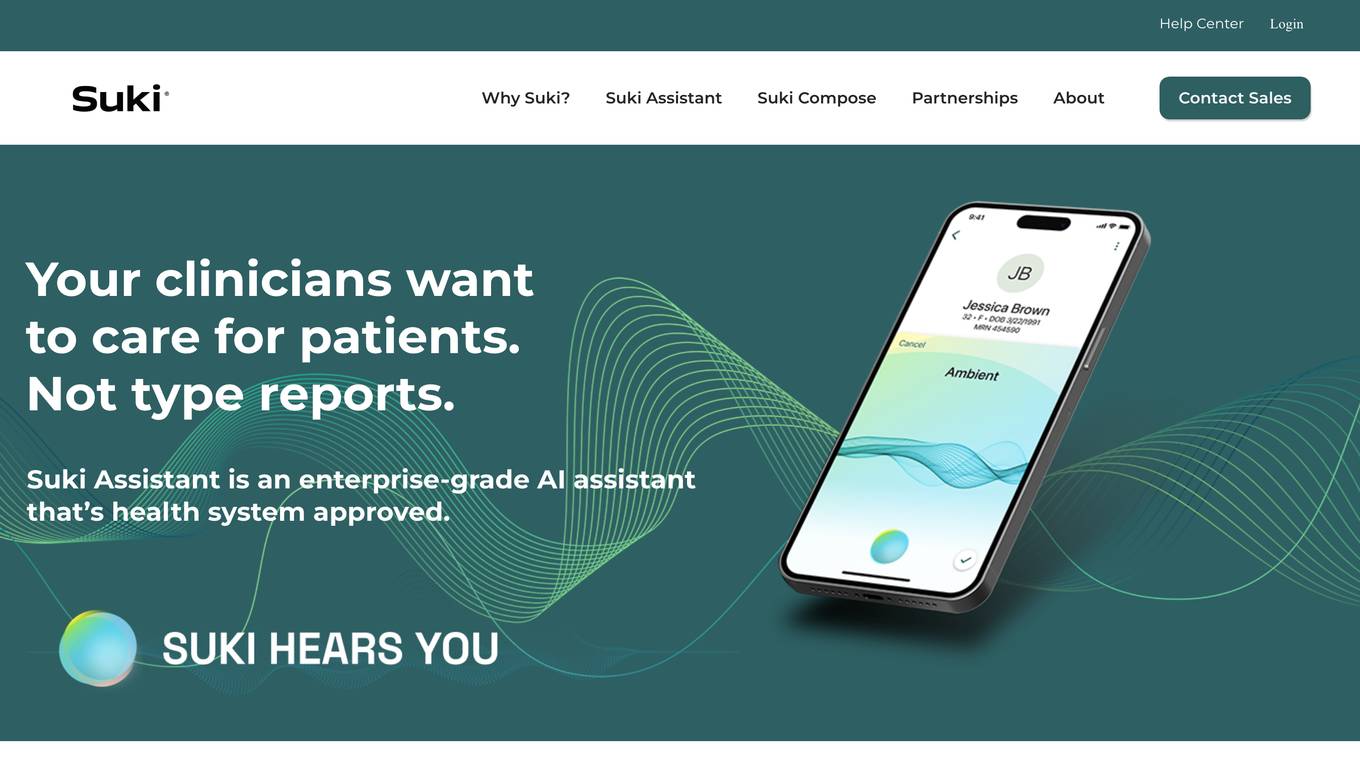
Suki AI
Suki AI is an AI-powered healthcare assistant that offers ambient documentation, clinical reasoning, assisted coding, and compliance solutions for clinicians. It provides a robust SDK and suite of APIs for integrating AI capabilities into healthcare applications. Suki aims to reduce the burden of documentation, allowing clinicians to focus on patient care. The platform is fully integrated with major enterprise EHR systems and ensures safe, clinician-reviewed documentation. Suki has a high adoption rate and delivers proven ROI by increasing coding accuracy and clinician efficiency.
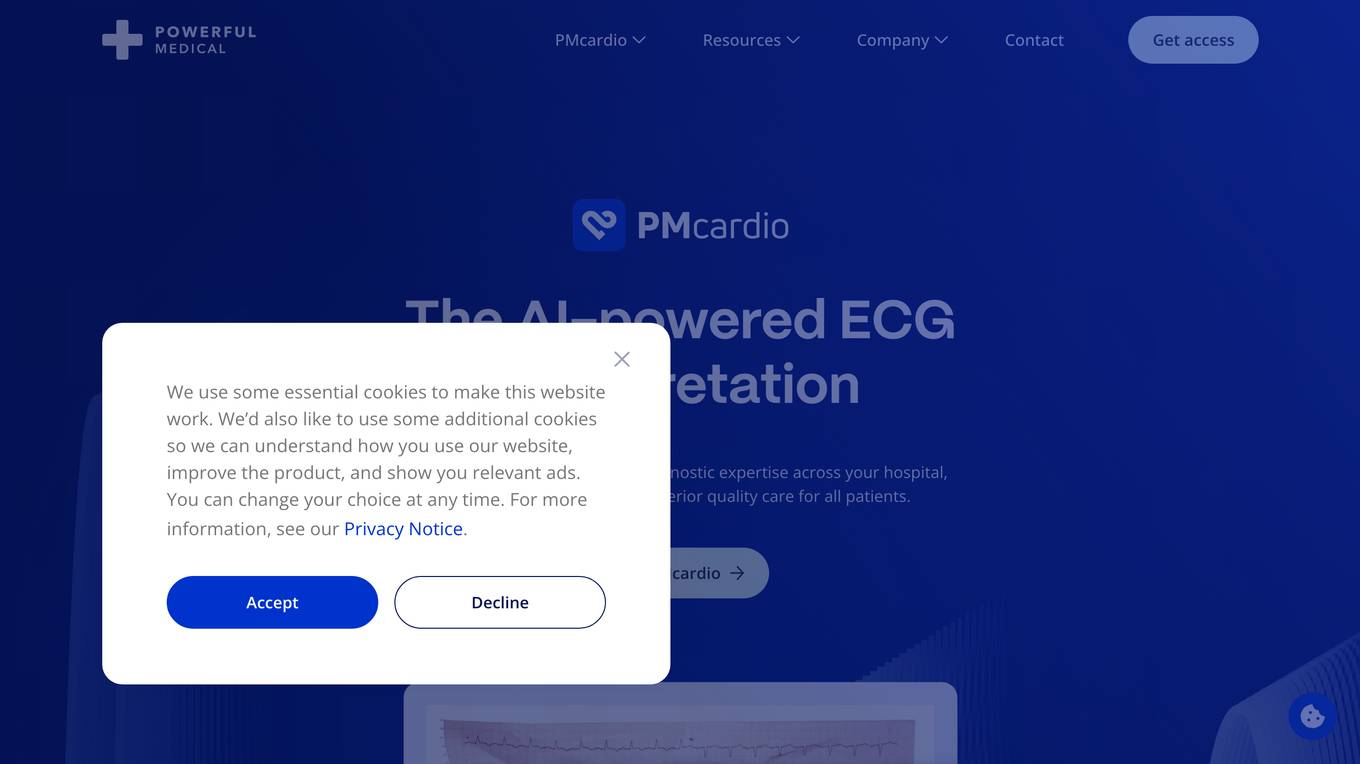
PMcardio
PMcardio is an AI-powered platform that offers accurate and rapid diagnosis of cardiovascular diseases through ECG interpretation. It provides healthcare professionals with advanced AI technology to detect conditions such as acute ST-elevation myocardial infarction (STEMI) and reduced Left Ventricular Ejection Fraction (LVEF) within seconds. PMcardio aims to streamline clinical decision-making, enhance diagnostic accuracy, and improve patient care by leveraging AI algorithms trained on millions of patient outcomes. The platform is designed to ensure standardized ECG reports, facilitate care coordination, and meet the highest standards of quality and security in healthcare settings.
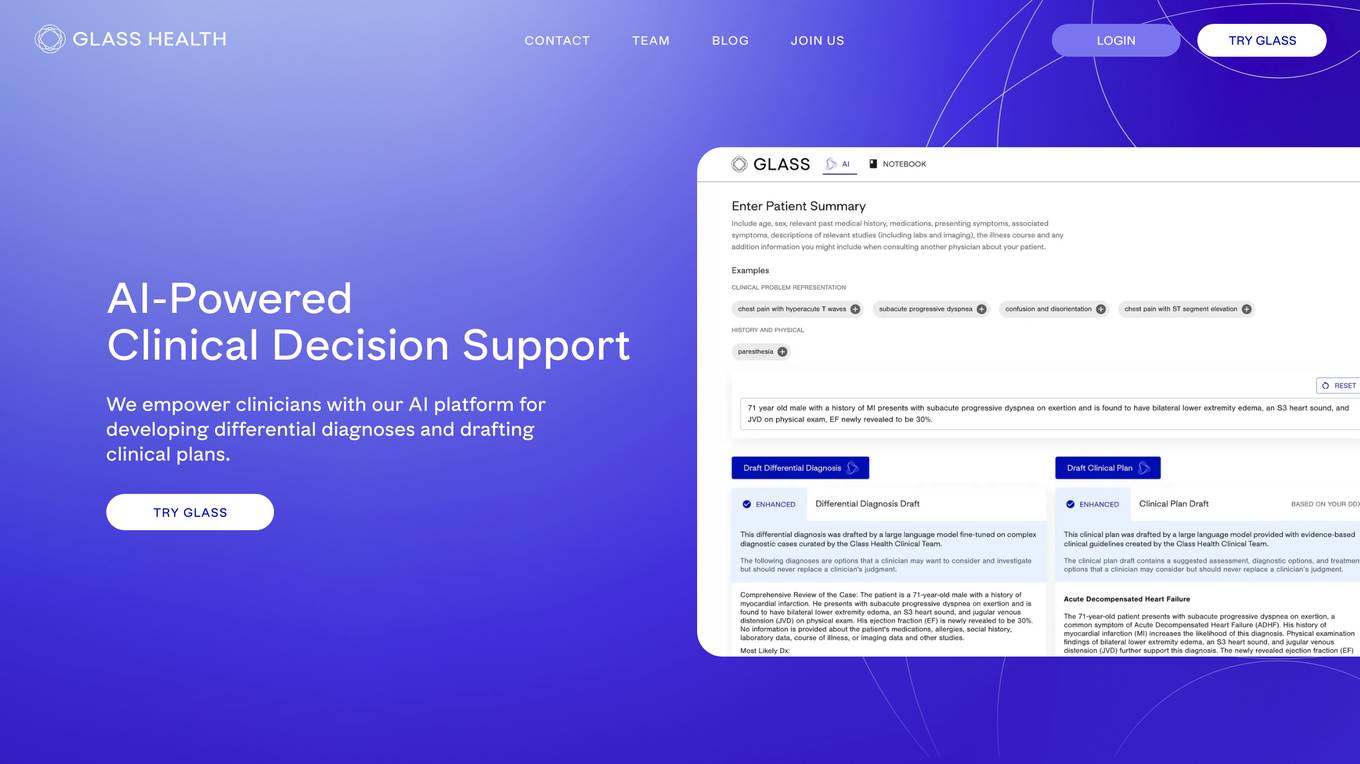
Glass Health
Glass Health is an AI-powered clinical decision support platform that empowers clinicians by providing tools to develop differential diagnoses and draft clinical plans. The platform combines cutting-edge AI technology with evidence-based medical knowledge to streamline diagnostic decisions and optimize clinician workflows. Glass Health's mission is to leverage technology to enhance the practice of medicine, increase diagnostic accuracy, implement evidence-based medicine, promote health equity, and improve patient outcomes globally. The platform is built by clinicians, for clinicians, with a deep commitment to safety, ethics, and alignment.

Tempus
Tempus is an AI-enabled precision medicine company that brings the power of data and artificial intelligence to healthcare. With the power of AI, Tempus accelerates the discovery of novel targets, predicts the effectiveness of treatments, identifies potentially life-saving clinical trials, and diagnoses multiple diseases earlier. Tempus's innovative technology includes ONE, an AI-enabled clinical assistant; NEXT, a tool to identify and close gaps in care; LENS, a platform to find, access, and analyze multimodal real-world data; and ALGOS, algorithmic models connected to Tempus's assays to provide additional insight.
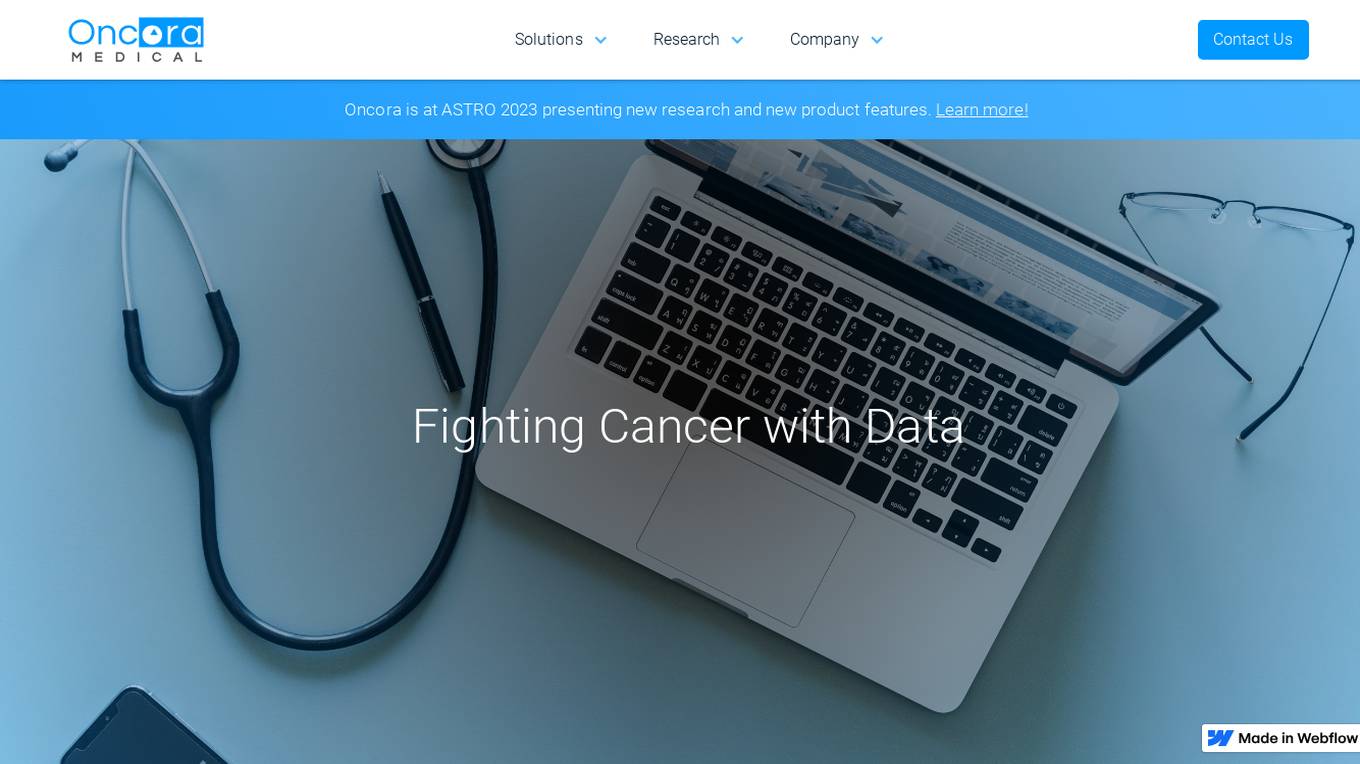
Oncora Medical
Oncora Medical is a healthcare technology company that provides software and data solutions to oncologists and cancer centers. Their products are designed to improve patient care, reduce clinician burnout, and accelerate clinical discoveries. Oncora's flagship product, Oncora Patient Care, is a modern, intelligent user interface for oncologists that simplifies workflow, reduces documentation burden, and optimizes treatment decision making. Oncora Analytics is an adaptive visual and backend software platform for regulatory-grade real world data analytics. Oncora Registry is a platform to capture and report quality data, treatment data, and outcomes data in the oncology space.
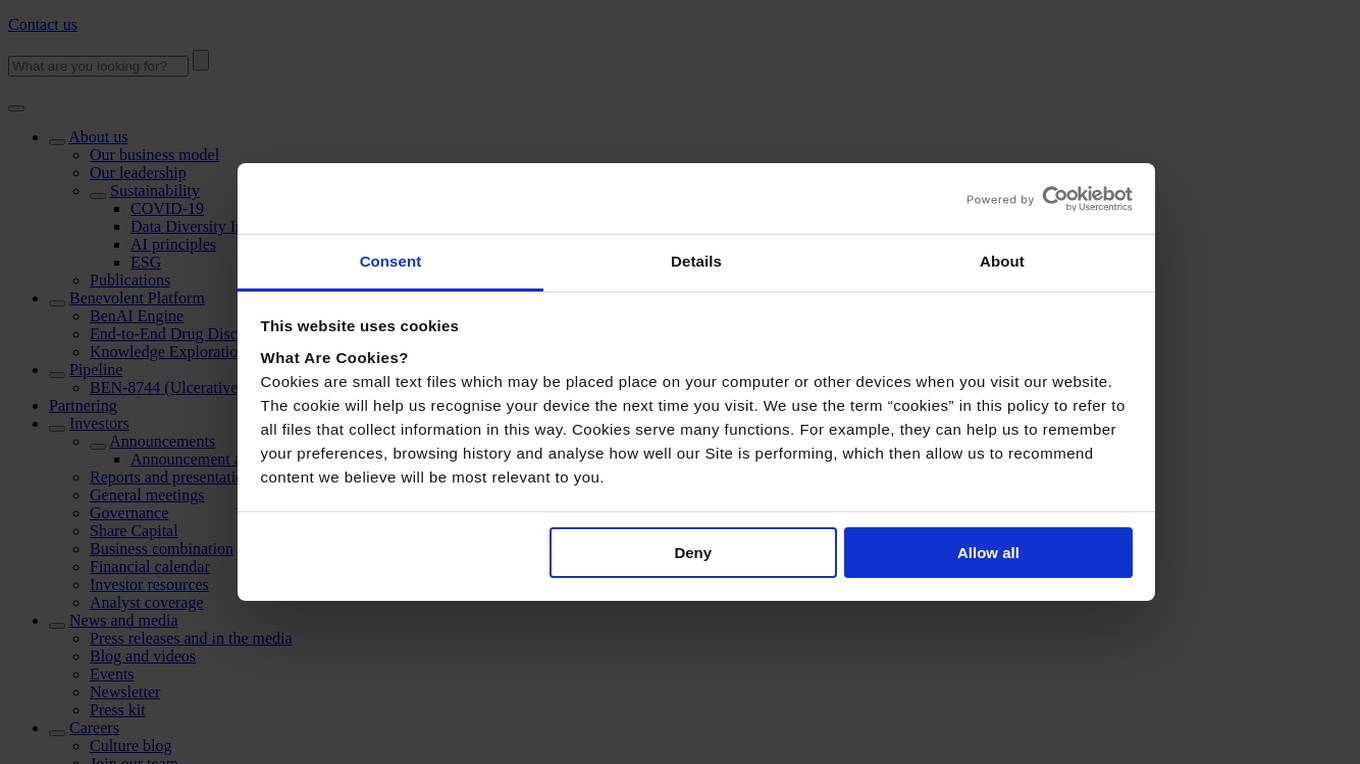
BenevolentAI
BenevolentAI is a leader in applying advanced AI to accelerate biopharma drug discovery blending science and technology with a focus on finding solutions for complex diseases. We empower both biopharmaceutical companies and our internal scientists to harness the full potential of data and AI to accelerate the next generation of scientific advances. We have built our AI-enabled drug discovery engine to drive a revolution in drug discovery. The Benevolent Platform™ unlocks the power of a vast biomedical data landscape to provide a multidimensional representation of human biology across all diseases. We believe this approach will improve the probability of clinical success, and help us deliver life-changing treatments to patients – because it matters.

CBIIT
The National Cancer Institute's Center for Biomedical Informatics and Information Technology (CBIIT) provides a comprehensive suite of tools, resources, and training to support cancer data science research. These resources include data repositories, analytical tools, data standards, and training materials. CBIIT also develops and maintains the NCI Thesaurus, a comprehensive vocabulary of cancer-related terms, and the Cancer Data Standards Registry and Repository (caDSR), a repository of cancer data standards. CBIIT's mission is to accelerate the pace of cancer research by providing researchers with the tools and resources they need to access, analyze, and share cancer data.
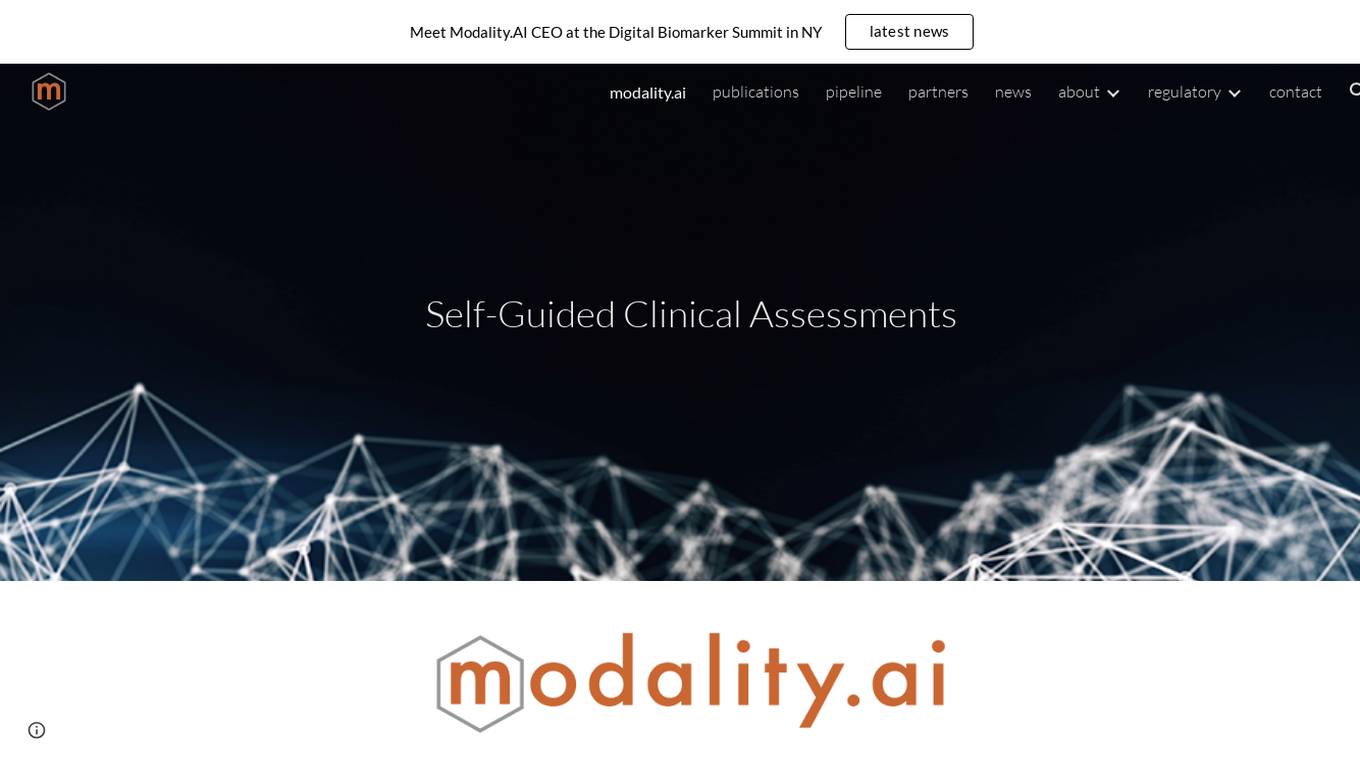
Modality.AI
Modality.AI is an AI application that has developed an automated, clinically validated system to assess neurological and psychiatric states both in clinic and remotely. The platform utilizes conversational AI to monitor conditions accurately and consistently, allowing researchers and clinicians to review data in near real-time and monitor treatment response over time. Modality.AI collaborates with world-class AI/Machine Learning experts and leading institutions to provide a HIPAA-compliant system for assessing various indications such as ALS, Parkinson's, depression, autism, Huntington's Disease, schizophrenia, and mild cognitive impairment. The platform enables convenient monitoring at home through streaming and analysis of speech and facial responses, without the need for special software or apps. Modality.AI is accessible on various devices with a browser, webcam, and microphone, offering a new approach to efficient and cost-effective clinical trials.
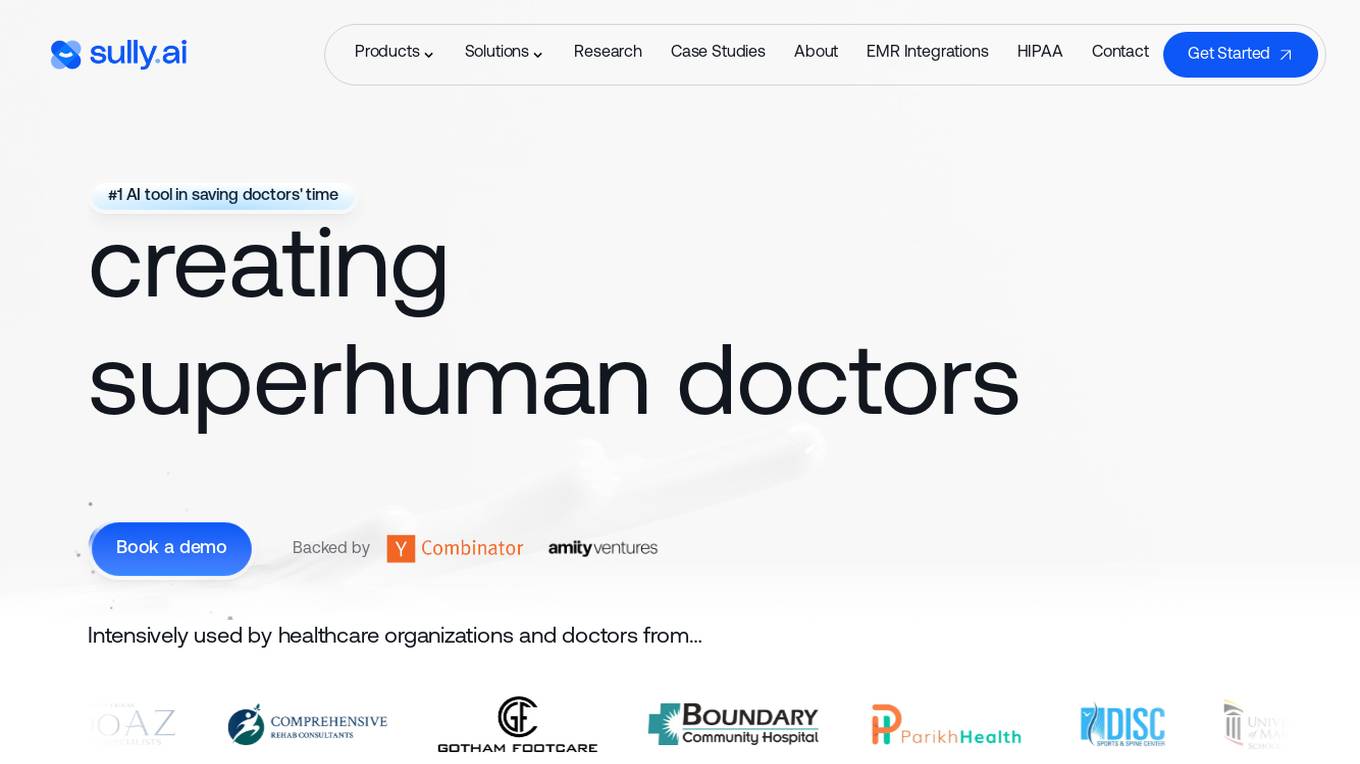
Sully.ai
Sully.ai is the #1 all-in-one AI solution designed to save doctors' time by creating superhuman doctors. The platform offers a comprehensive set of features such as pre-visit screening, decision support, scribing, diagnosis assistance, clinical planning, and post-visit automations. Sully.ai is an automation platform that works seamlessly with Electronic Medical Records (EMR) systems, providing personalized and multilingual support for healthcare professionals. The AI model is HIPAA compliant and trained on real-life doctor encounters to enhance decision-making and streamline administrative tasks. With proven results in reducing repetitive tasks and improving efficiency, Sully.ai aims to transform healthcare delivery by empowering doctors to focus on patient care.
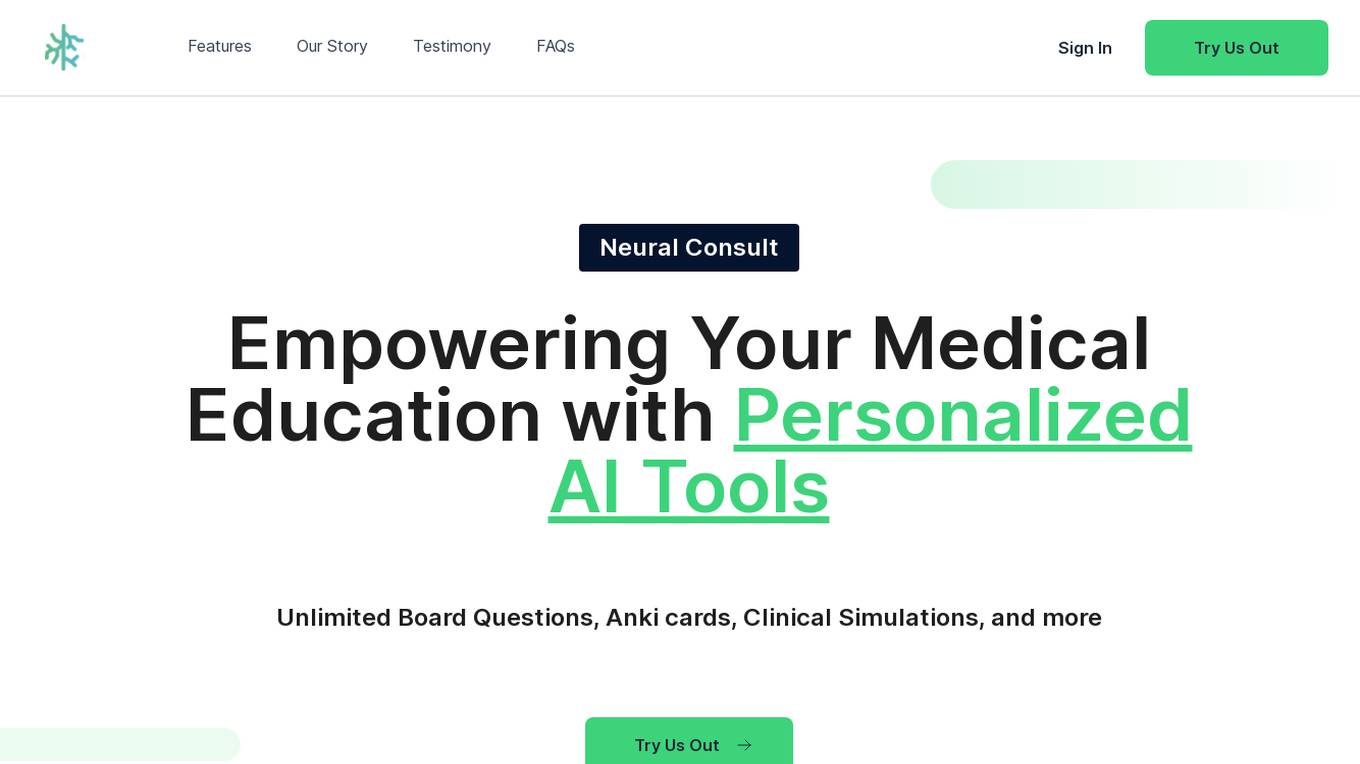
Neural Consult
Neural Consult is a cutting-edge AI-powered medical education platform that offers personalized learning tools to empower medical students. The platform provides unlimited board questions, Anki cards, clinical simulations, and more, tailored to individual study needs. With features like question generation, lecture summaries, differential diagnosis, and AI-powered case simulations, Neural Consult revolutionizes the way medical students learn and prepare for exams. Trusted by students at top medical schools, Neural Consult aims to enhance clinical reasoning, memorization skills, and overall learning efficiency through innovative AI technology.
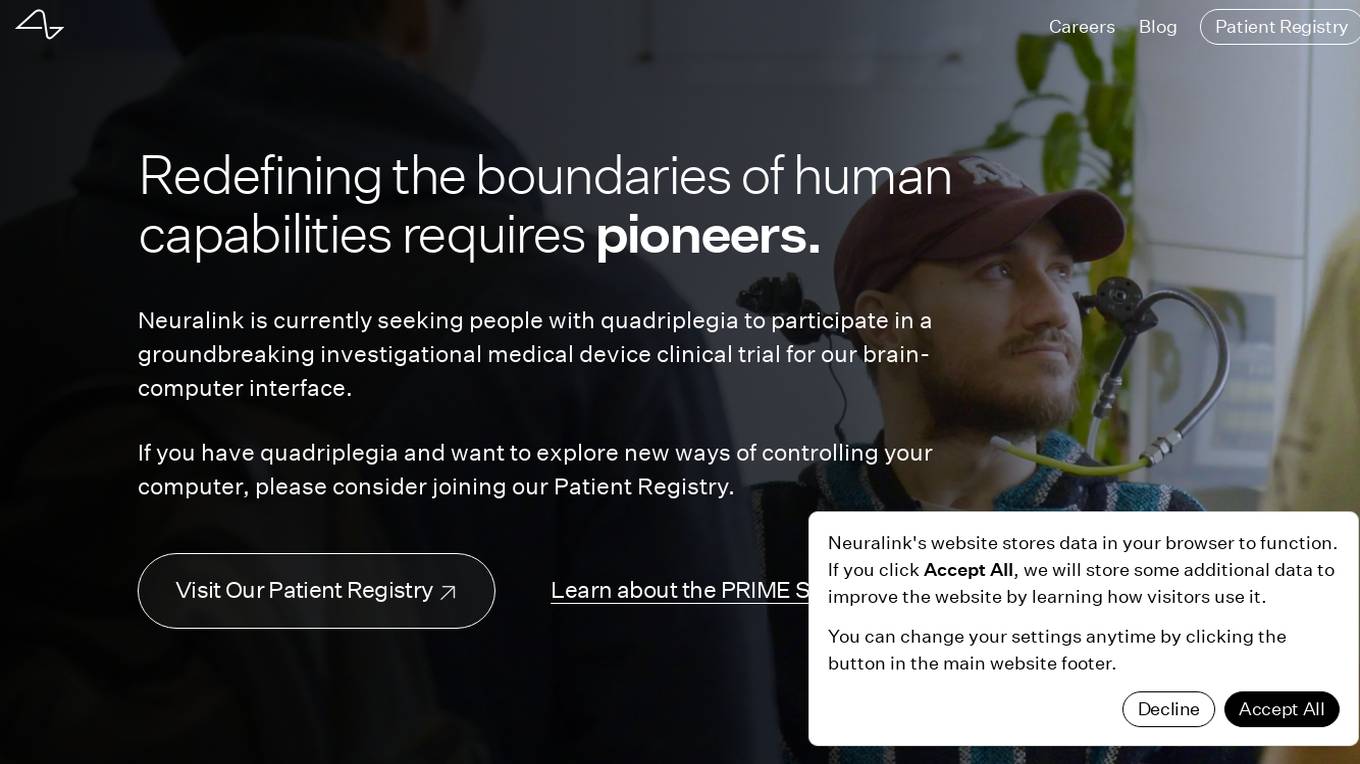
Neuralink
Neuralink is a pioneering brain-computer interface (BCI) application that aims to redefine human capabilities by creating a generalized brain interface to restore autonomy to individuals with unmet medical needs. The application focuses on developing fully implantable BCIs that allow users, particularly those with quadriplegia, to control computers and mobile devices using their thoughts. Neuralink's innovative technology includes advanced chips, biocompatible enclosures, and surgical robots for precise implantation. The application prioritizes safety, accessibility, and reliability in its engineering process, with future goals of restoring vision, motor function, and speech capabilities.
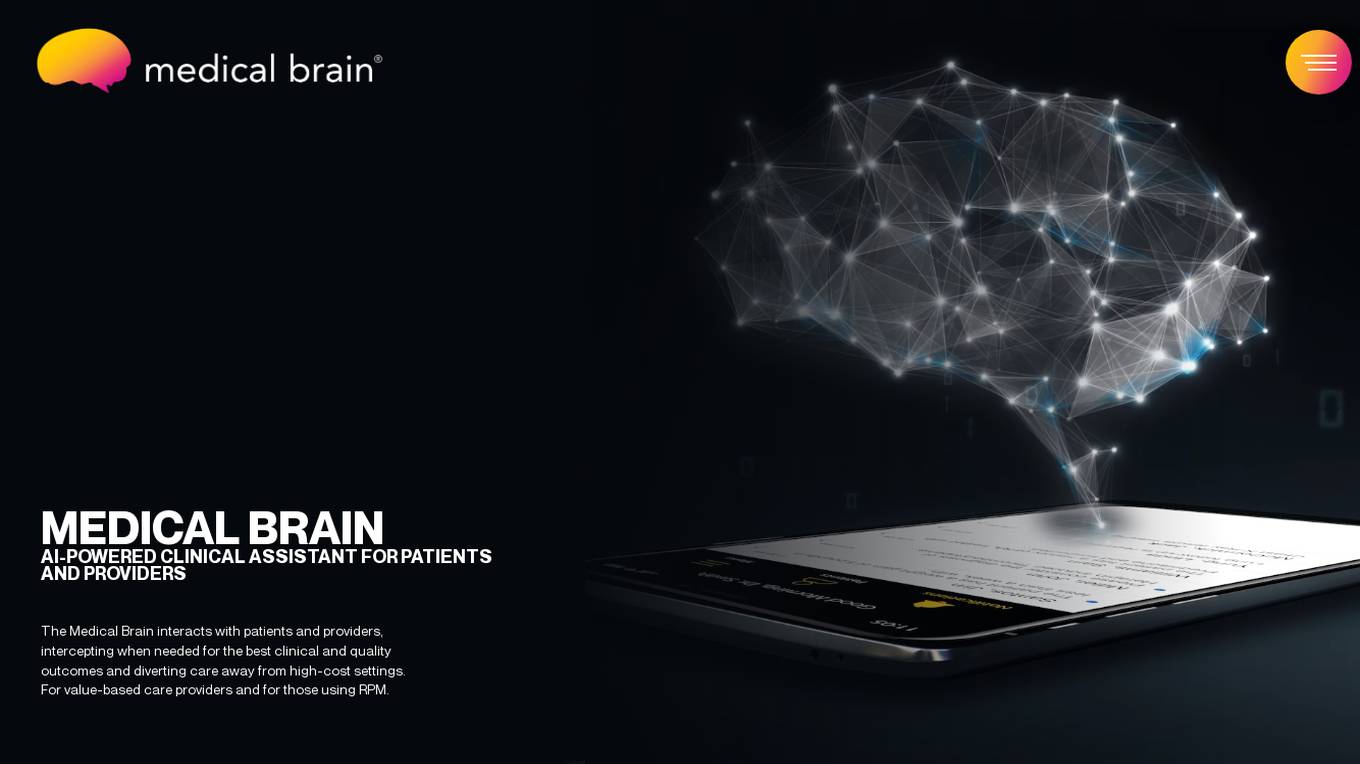
Medical Brain
Medical Brain is an AI-powered clinical assistant designed for both patients and providers. It engages with users to identify health risks and care gaps early, providing actionable insights and guidance to improve outcomes and intercept high-cost ER visits. The platform monitors patients 24/7, aggregates and understands all patient data, and generates real-time actions based on AI clinical decision support and automation. Medical Brain incorporates evidence-based best practices in various clinical modules and continuously learns from user experiences to enhance efficiency and intelligence.
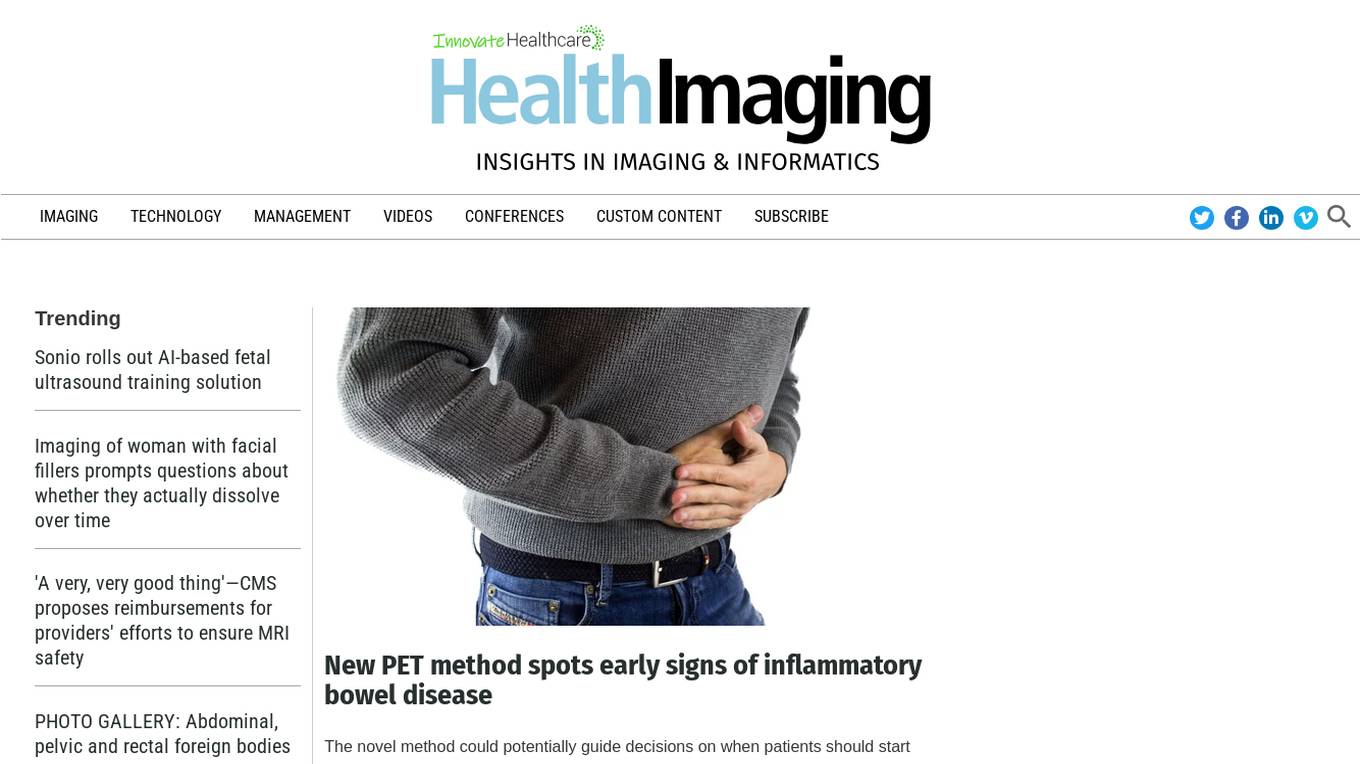
Health Imaging
Health Imaging is an AI-powered platform that focuses on providing cutting-edge solutions in medical imaging and healthcare management. The platform offers a wide range of features and tools that leverage artificial intelligence to enhance diagnostic accuracy, streamline workflows, and improve patient care. From advanced imaging technologies to AI-based training solutions, Health Imaging is at the forefront of innovation in the healthcare industry.
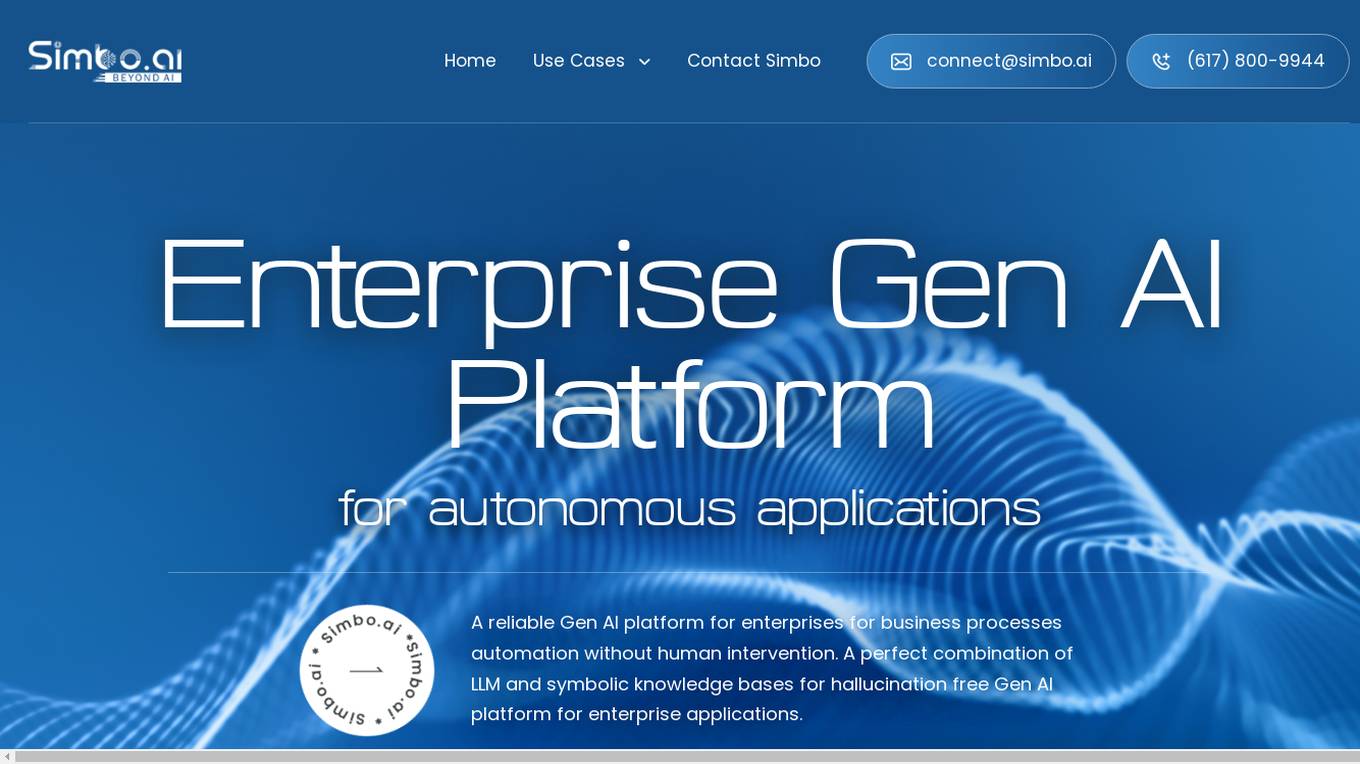
Simbo AI
Simbo AI is a Gen AI platform designed for healthcare enterprises, offering autonomous applications for medical practice automation. It combines LLM and symbolic knowledge bases to provide hallucination-free responses. The platform is fully controllable, consistent, secure, and responsible, ensuring accurate and reliable AI interactions. Simbo AI utilizes Symbolic RAG technology with Lossless NLU for exact search and fact-checking capabilities. It aims to automate medical practices, reduce costs, and improve patient care, ultimately enhancing the lives of doctors and patients.
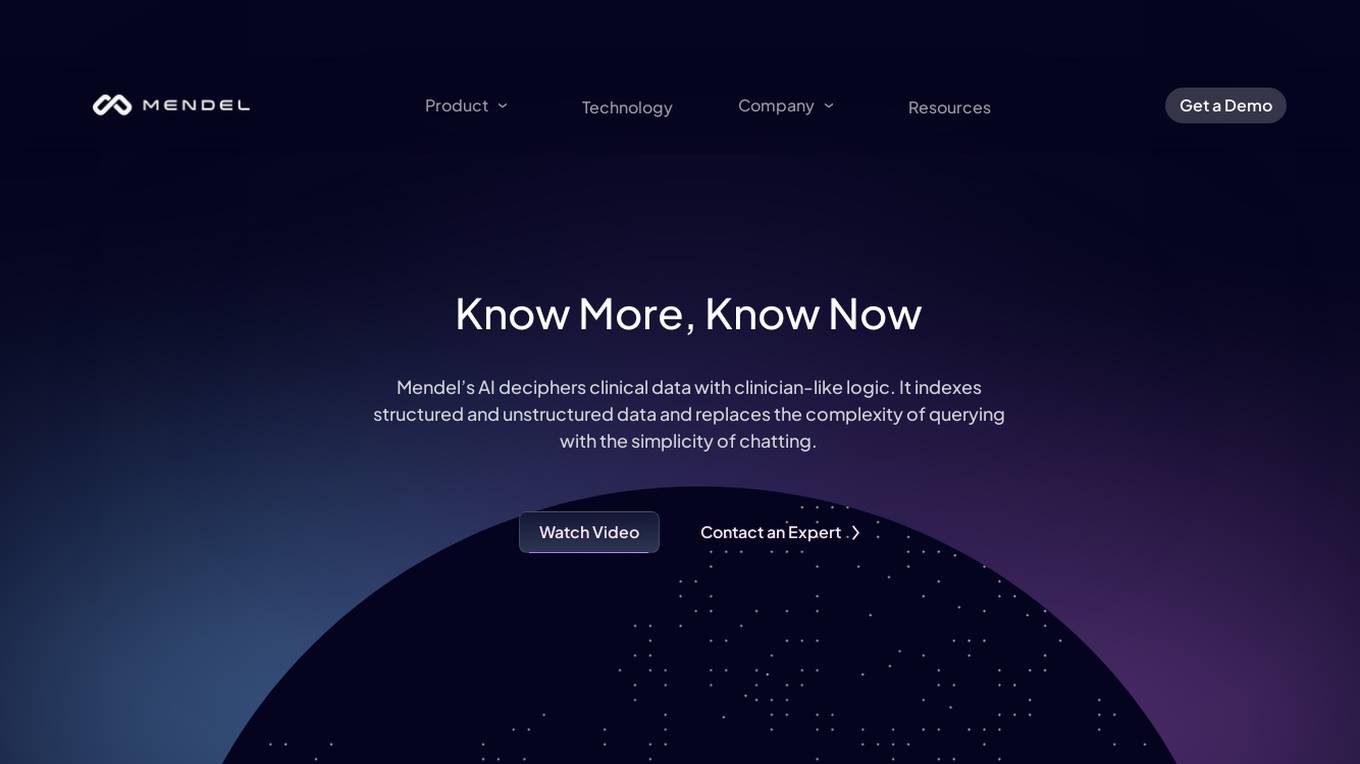
Mendel AI
Mendel AI is an advanced clinical AI tool that deciphers clinical data with clinician-like logic. It offers a fully integrated suite of clinical-specific data processing products, combining OCR, de-identification, and clinical reasoning to interpret medical records. Users can ask questions in plain English and receive accurate answers from health records in seconds. Mendel's technology goes beyond traditional AI by understanding patient-level data and ensuring consistency and explainability of results in healthcare.
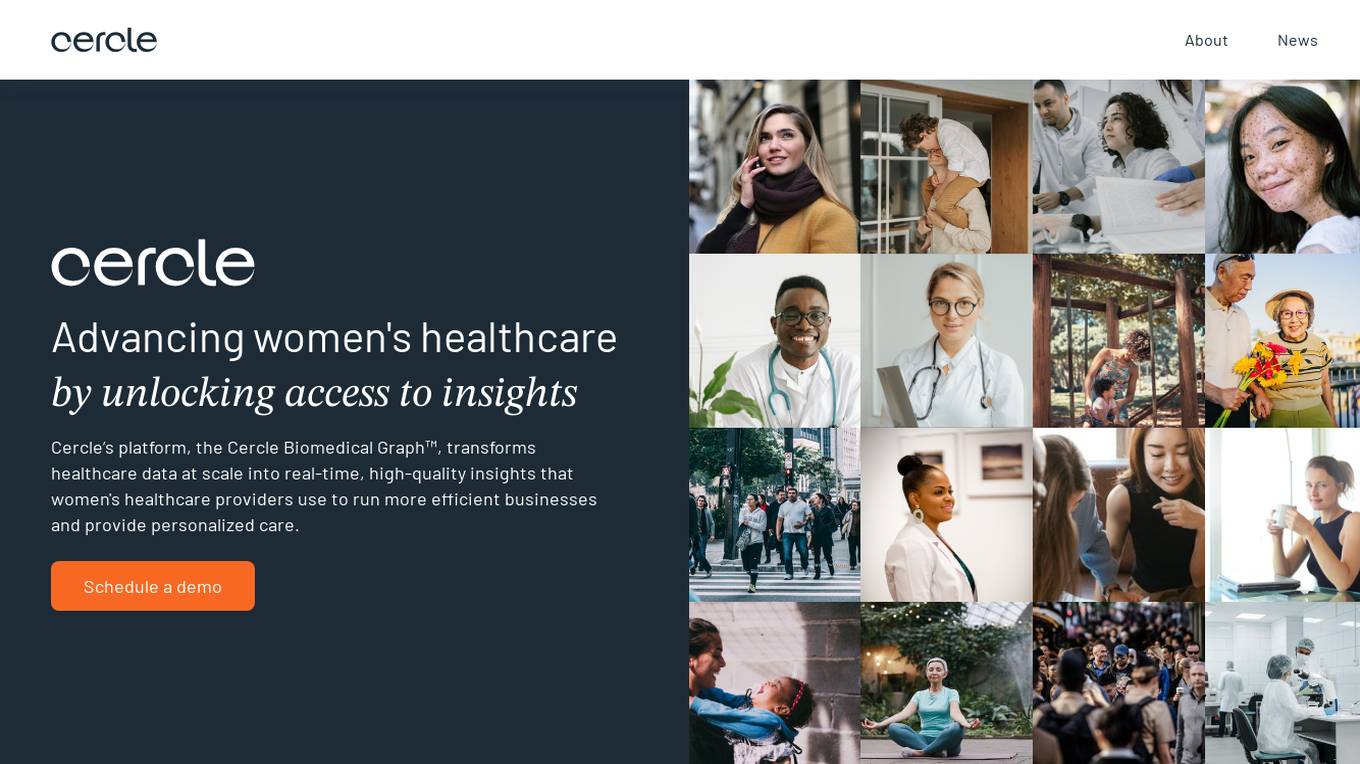
Cercle
Cercle is an AI platform that advances healthcare for women by transforming healthcare data into real-time, high-quality insights. The platform caters to women's healthcare providers, payors, and pharma companies, helping them run more efficient businesses and provide personalized care. Cercle's Biomedical Graph unlocks insights at unprecedented speed and accuracy, optimizing patient care and improving outcomes in areas such as assisted reproduction and fertility processes.
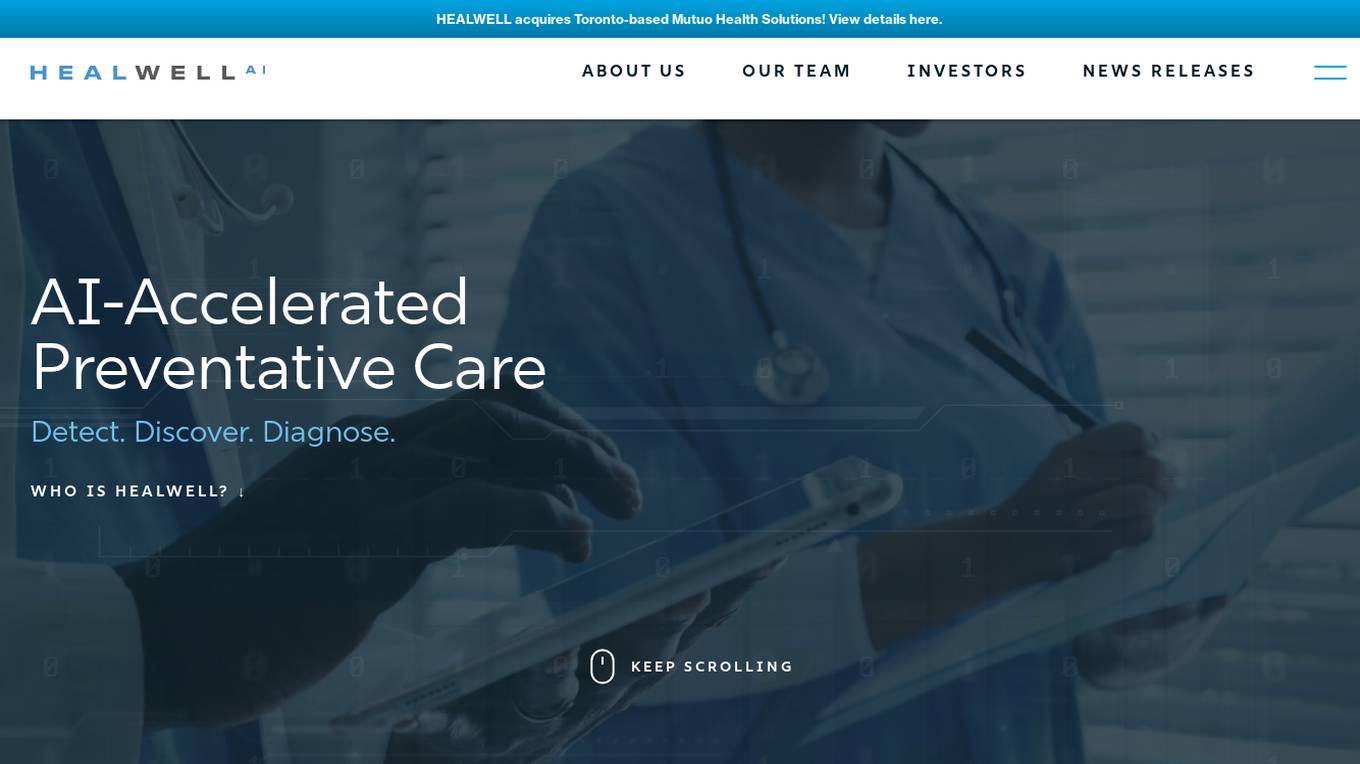
HEALWELL AI
HEALWELL AI is a healthcare technology company focusing on preventative care through AI and data science. Their mission is to improve healthcare and save lives by early disease detection. HEALWELL provides AI tools for healthcare providers to screen and detect rare, complex, and chronic diseases. They have developed AI clinical co-pilot technologies to assist physicians in early disease detection, ultimately accelerating time to diagnosis and saving lives.
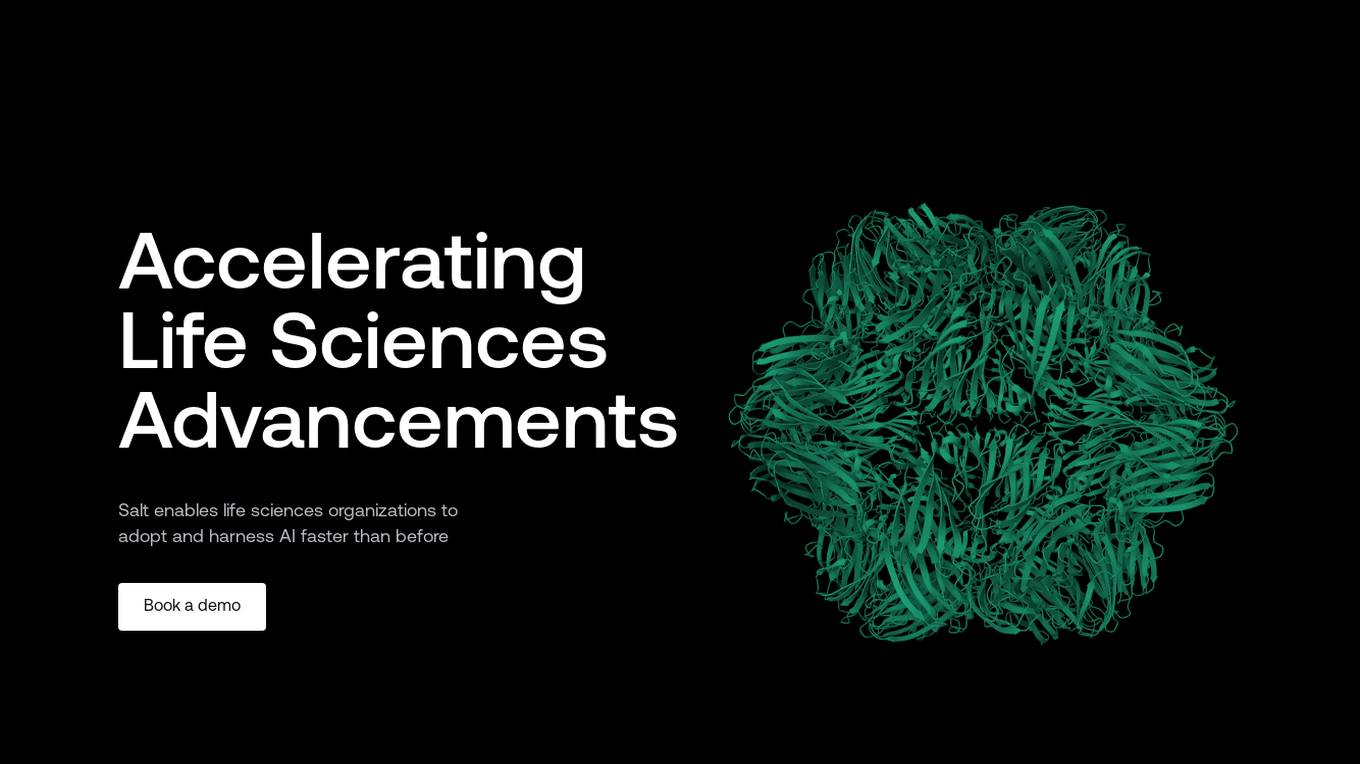
Salt AI
Salt AI is a development engine tailored for life sciences organizations, aiming to accelerate advancements in the field by enabling faster adoption and utilization of AI technologies. The platform offers reliable and reproducible AI processes, optimized for speed and efficiency, and promotes transparency and collaboration within workflows. With a focus on supporting best-in-class life sciences research models, Salt AI empowers users to enhance their understanding of biological processes through flexible and performant AI solutions.
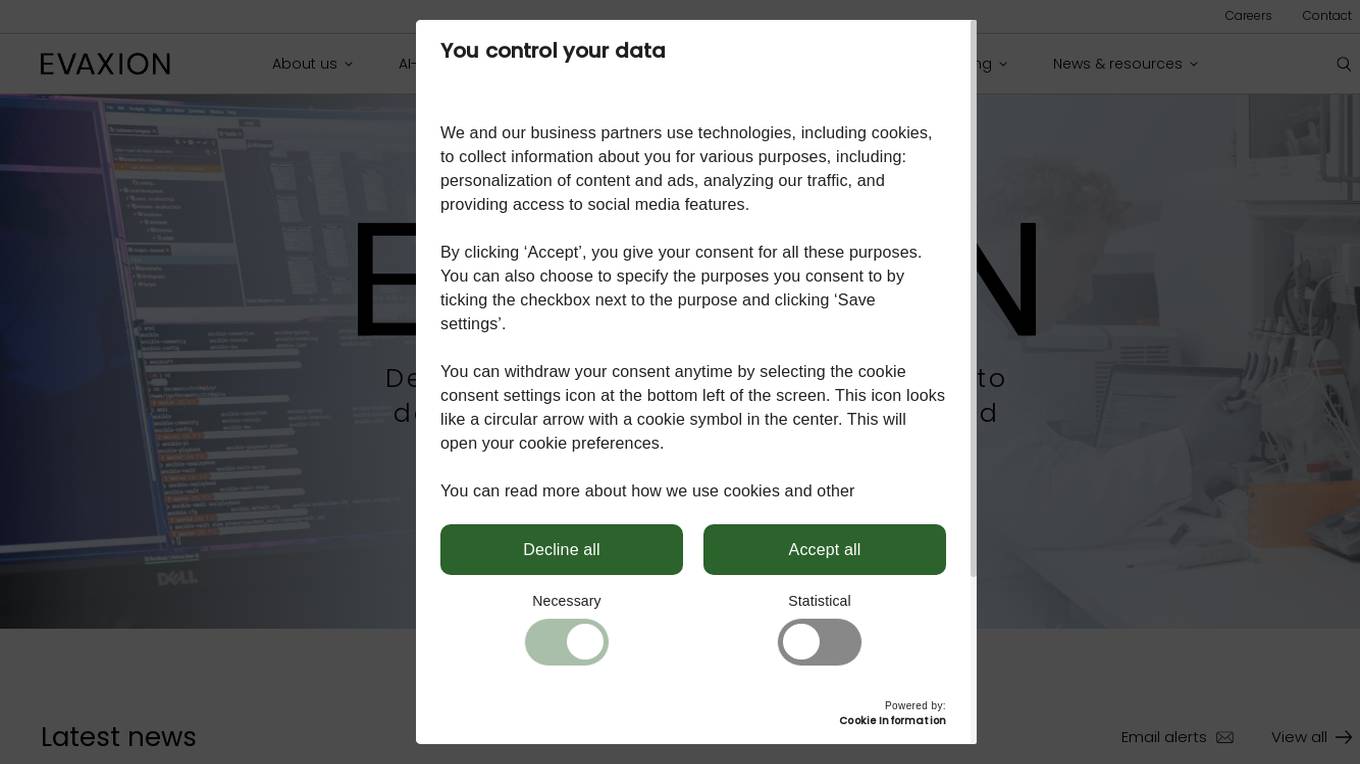
Evaxion
Evaxion is a pioneering TechBio company utilizing their AI-Immunology™ platform to decode the human immune system and develop novel vaccines for cancer and infectious diseases. Their platform accelerates vaccine target discovery, design, and development by simulating the human immune system and generating predictive models. Evaxion's cutting-edge research and multidisciplinary capabilities enable the rapid development of transformative treatments. The company aims to revolutionize the prevention and treatment of diseases through personalized and precision vaccines.
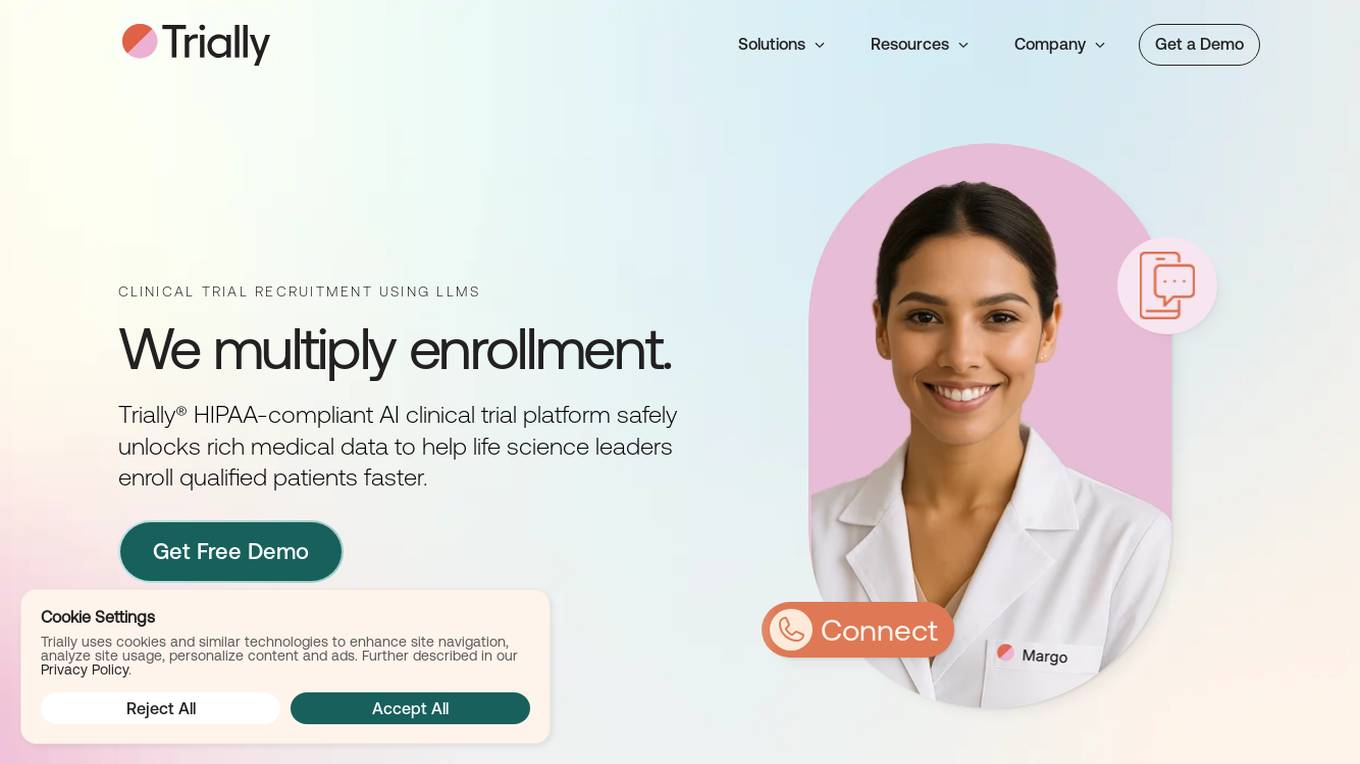
Trially AI
Trially AI is a HIPAA-compliant AI clinical trial platform that leverages advanced technology to help life science leaders enroll qualified patients faster. The platform uses AI algorithms to unlock rich medical data, match patients to trials, and improve enrollment rates. Trially AI is proven to deliver superior results 4x faster than other technology providers, with features like multiplying enrollment, reducing screen fails, and increasing eligibility accuracy. It benefits sponsors, CROs, research sites, and hospitals by improving enrollment rates, saving time on chart reviews, and enhancing site success outcomes.
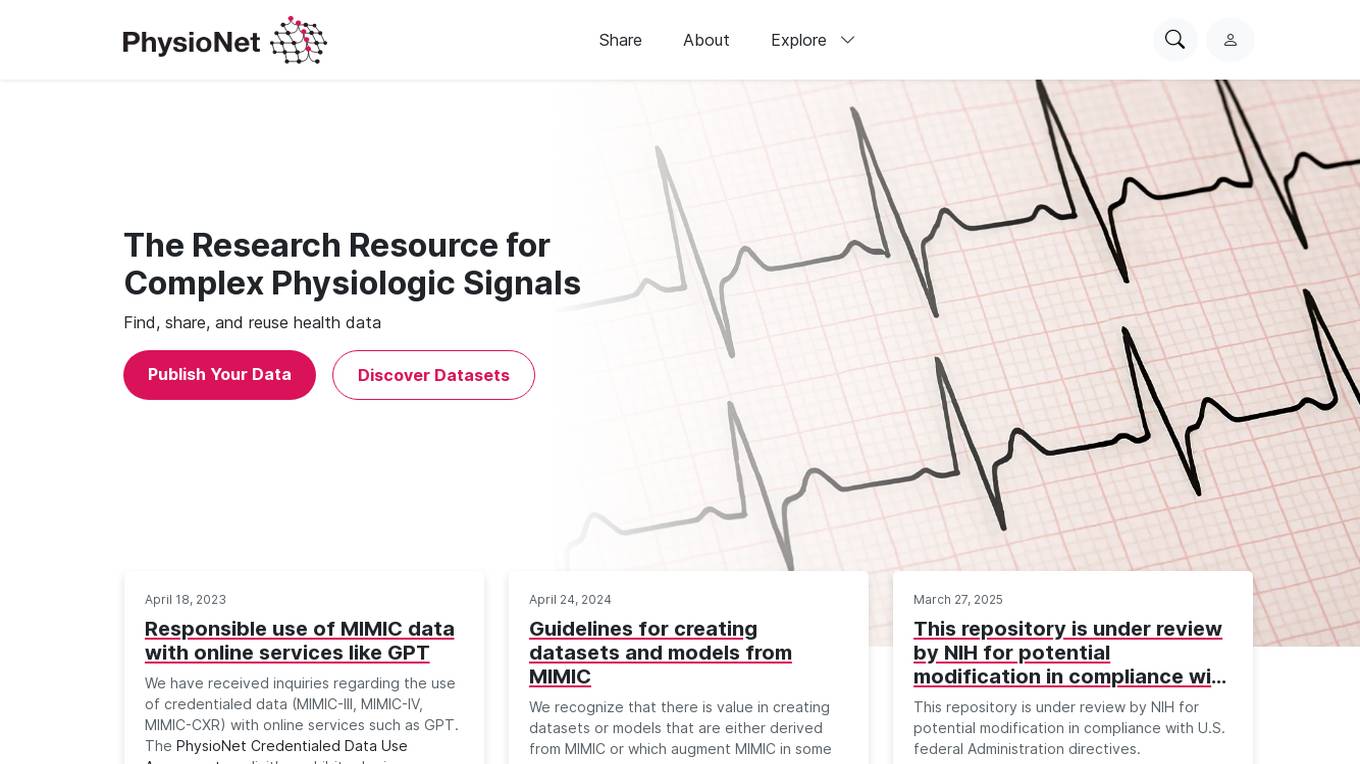
PhysioNet
PhysioNet is a research resource for complex physiologic signals that facilitates finding, sharing, and reusing health data. It provides access to various datasets and software tools for researchers in the medical field. PhysioNet aims to support the responsible use of data, including guidelines for creating datasets and models from sources like MIMIC. The platform also addresses access restrictions under the DOJ Data Security Program, ensuring compliance with legal obligations while supporting researchers in understanding and navigating policy changes.

IQVIA Healthcare-grade AI
IQVIA is a healthcare-grade AI tool that connects data, technology, and analytics to address the unique needs of healthcare. It offers solutions in research & development, real world evidence, commercialization, safety & regulatory compliance, and technologies. IQVIA AI is trained on high-quality data and deep domain expertise to generate reliable insights for the industry. The AI Assistant enables users to interact with solutions and products, providing faster decision-making and trustworthy results.
2 - Open Source Tools
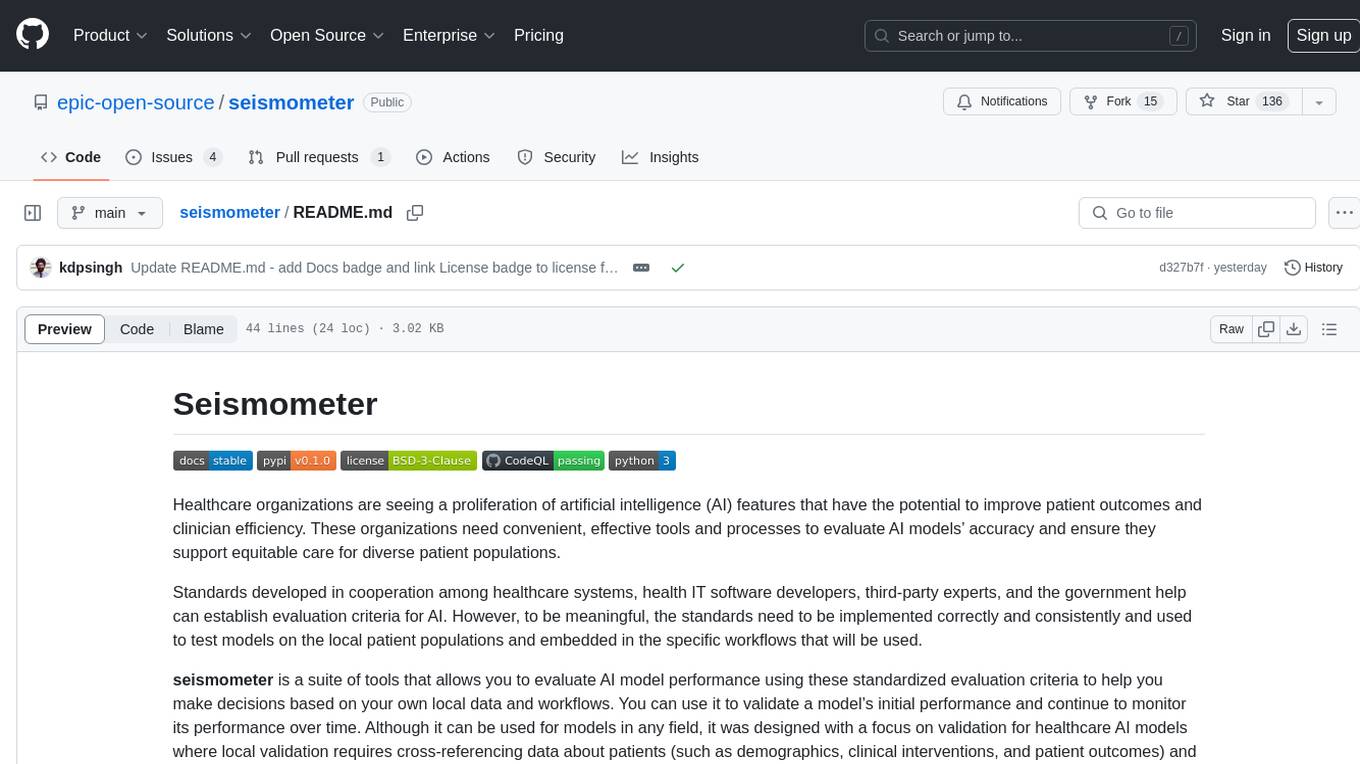
seismometer
Seismometer is a suite of tools designed to evaluate AI model performance in healthcare settings. It helps healthcare organizations assess the accuracy of AI models and ensure equitable care for diverse patient populations. The tool allows users to validate model performance using standardized evaluation criteria based on local data and workflows. It includes templates for analyzing statistical performance, fairness across different cohorts, and the impact of interventions on outcomes. Seismometer is continuously evolving to incorporate new validation and analysis techniques.
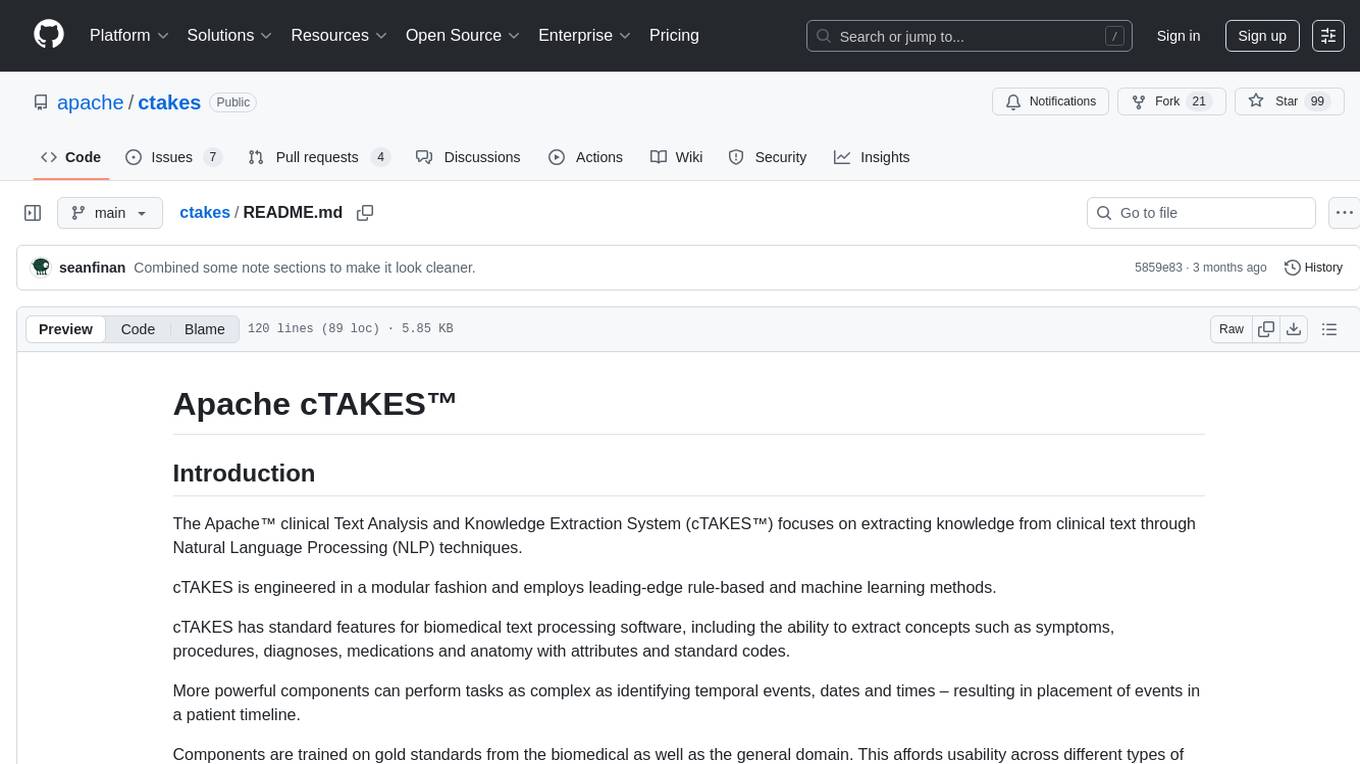
ctakes
Apache cTAKES is a clinical Text Analysis and Knowledge Extraction System that focuses on extracting knowledge from clinical text through Natural Language Processing (NLP) techniques. It is modular and employs rule-based and machine learning methods to extract concepts such as symptoms, procedures, diagnoses, medications, and anatomy with attributes and standard codes. cTAKES can identify temporal events, dates, and times, placing events in a patient timeline. It supports various biomedical text processing tasks and can handle different types of clinical and health-related narratives using multiple data standards. cTAKES is widely used in research initiatives and encourages contributions from professionals, researchers, doctors, and students from diverse backgrounds.
20 - OpenAI Gpts
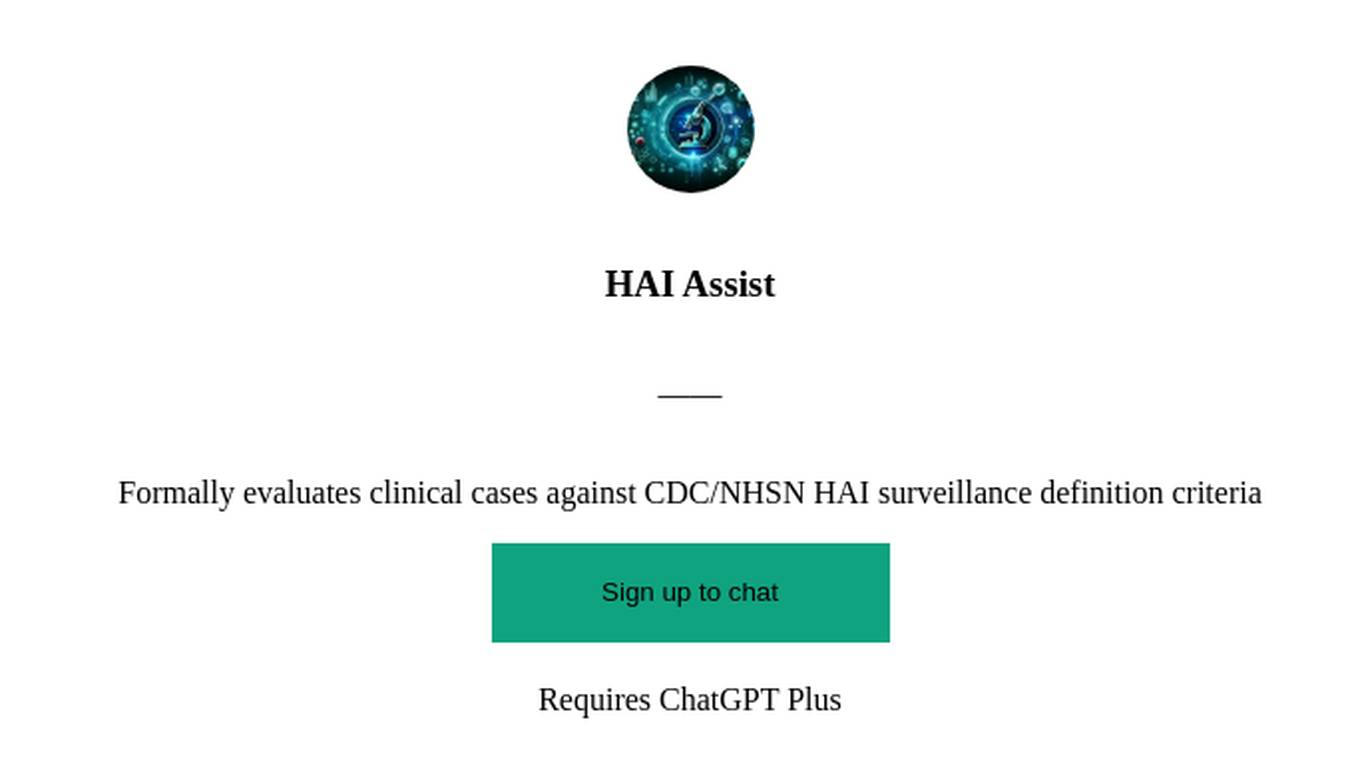
HAI Assist
Formally evaluates clinical cases against CDC/NHSN HAI surveillance definition criteria
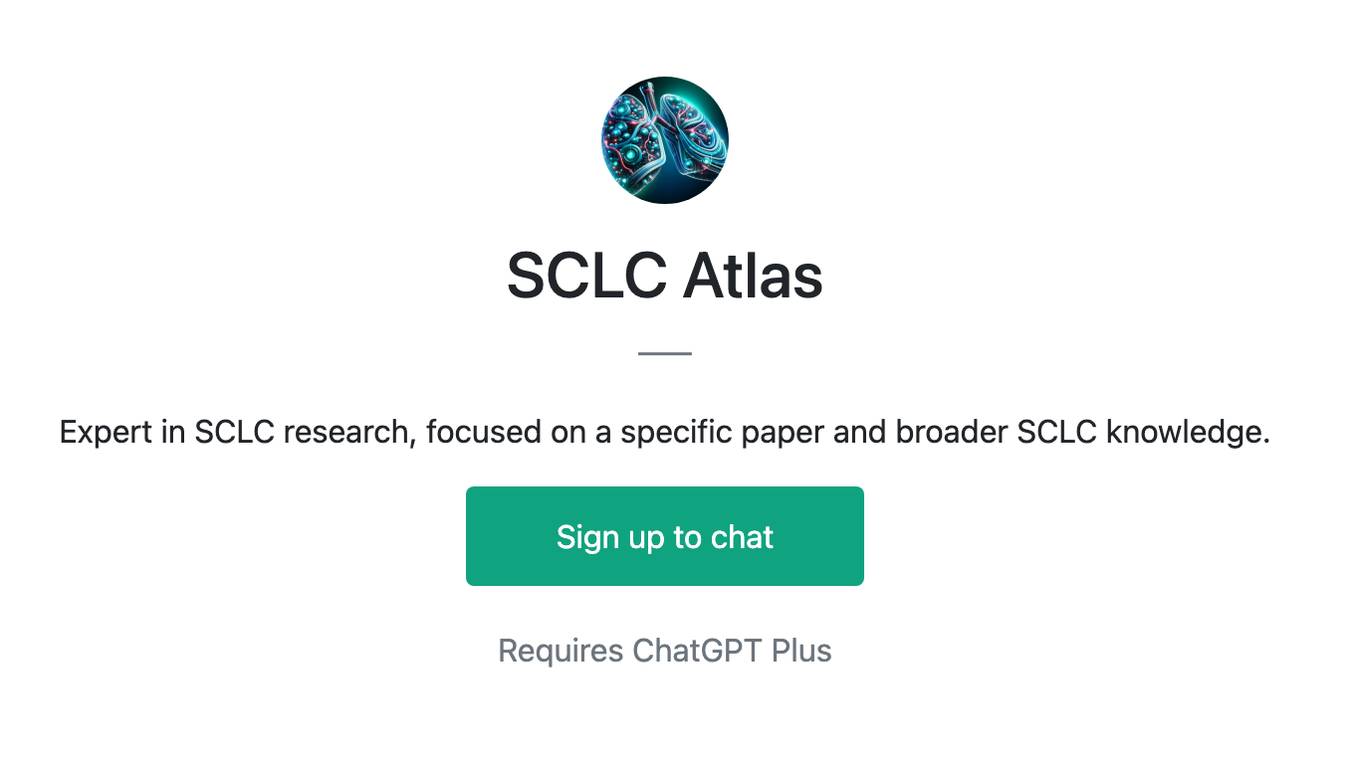
SCLC Atlas
Expert in SCLC research, focused on a specific paper and broader SCLC knowledge.
🩺 HealthWise Buddy 📘
Your go-to virtual companion for understanding medical conditions, treatments, and wellness tips! Empowers you with knowledge for informed health decisions. 🚑📚
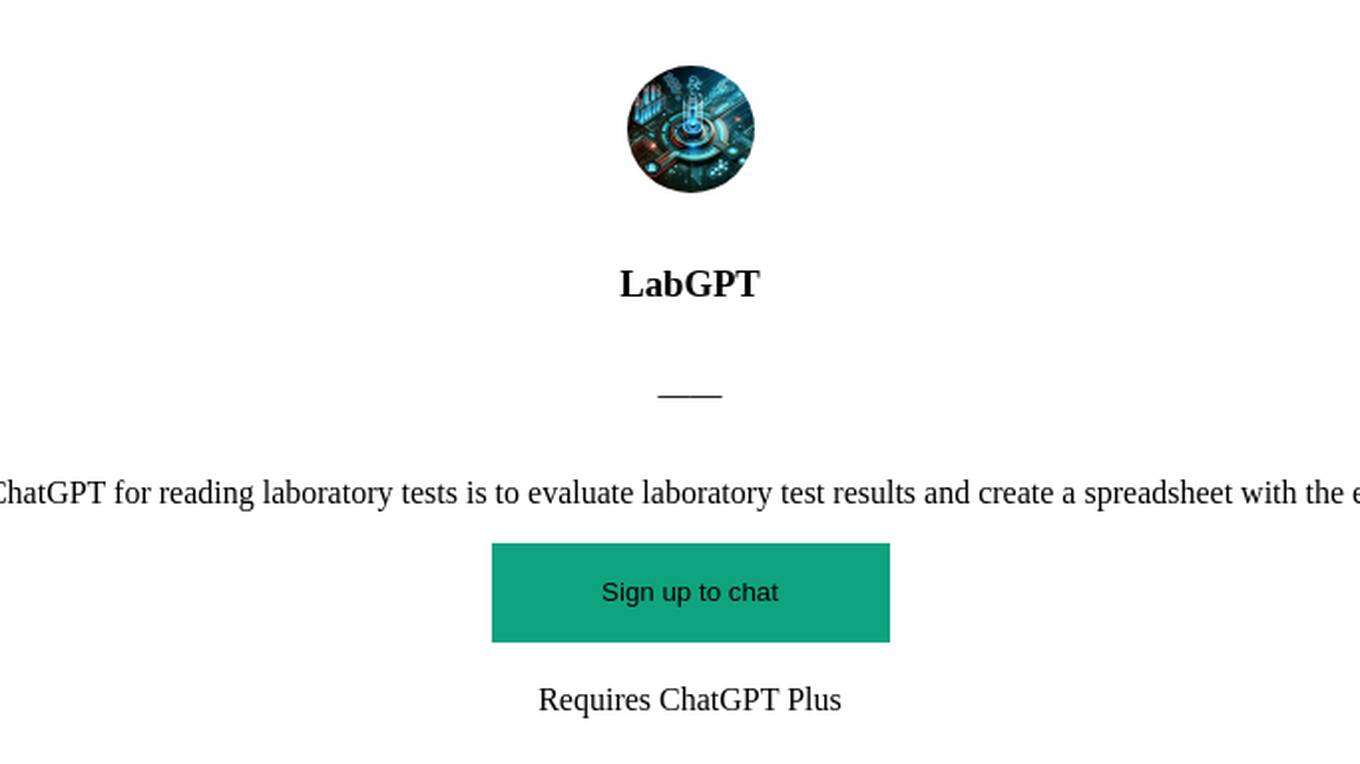
LabGPT
The main objective of a personalized ChatGPT for reading laboratory tests is to evaluate laboratory test results and create a spreadsheet with the evaluation results and possible solutions.
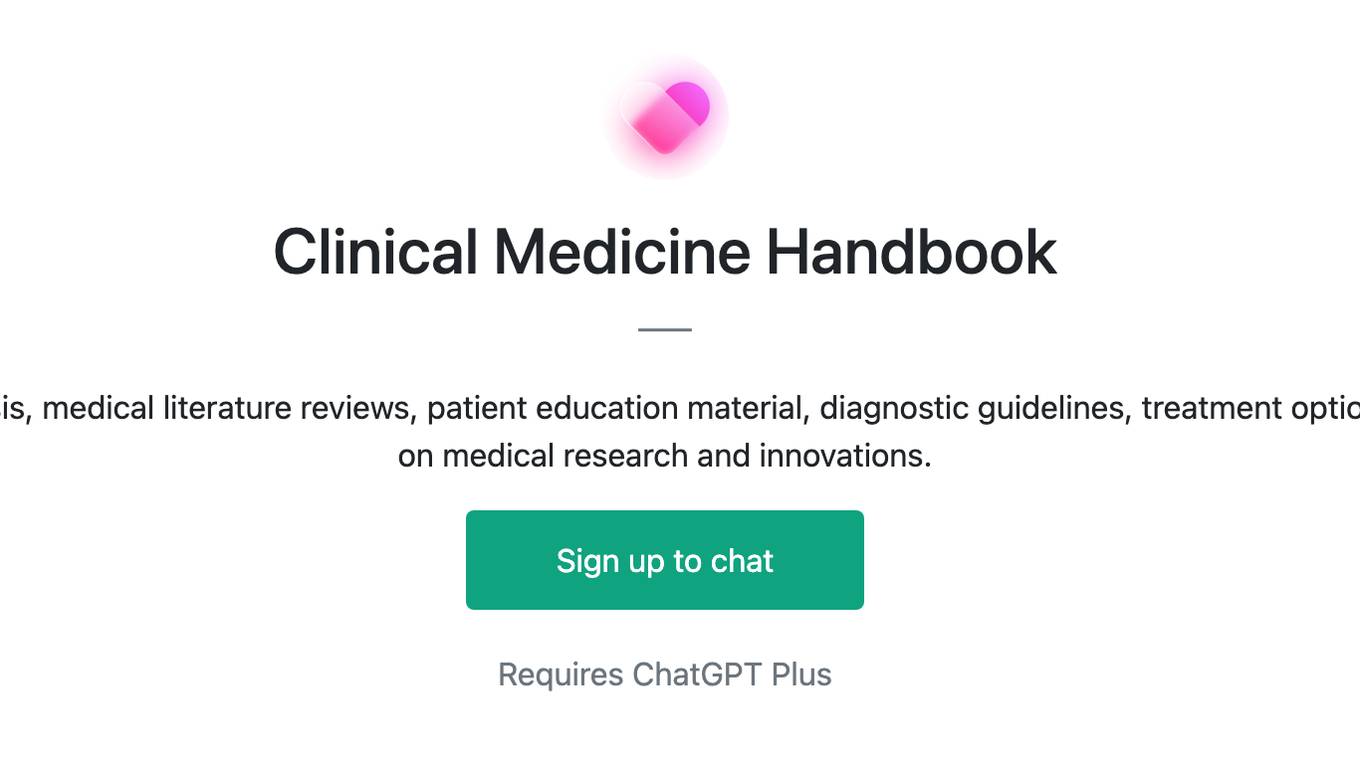
Clinical Medicine Handbook
I can assist doctors with information synthesis, medical literature reviews, patient education material, diagnostic guidelines, treatment options, ethical dilemmas, and staying updated on medical research and innovations.
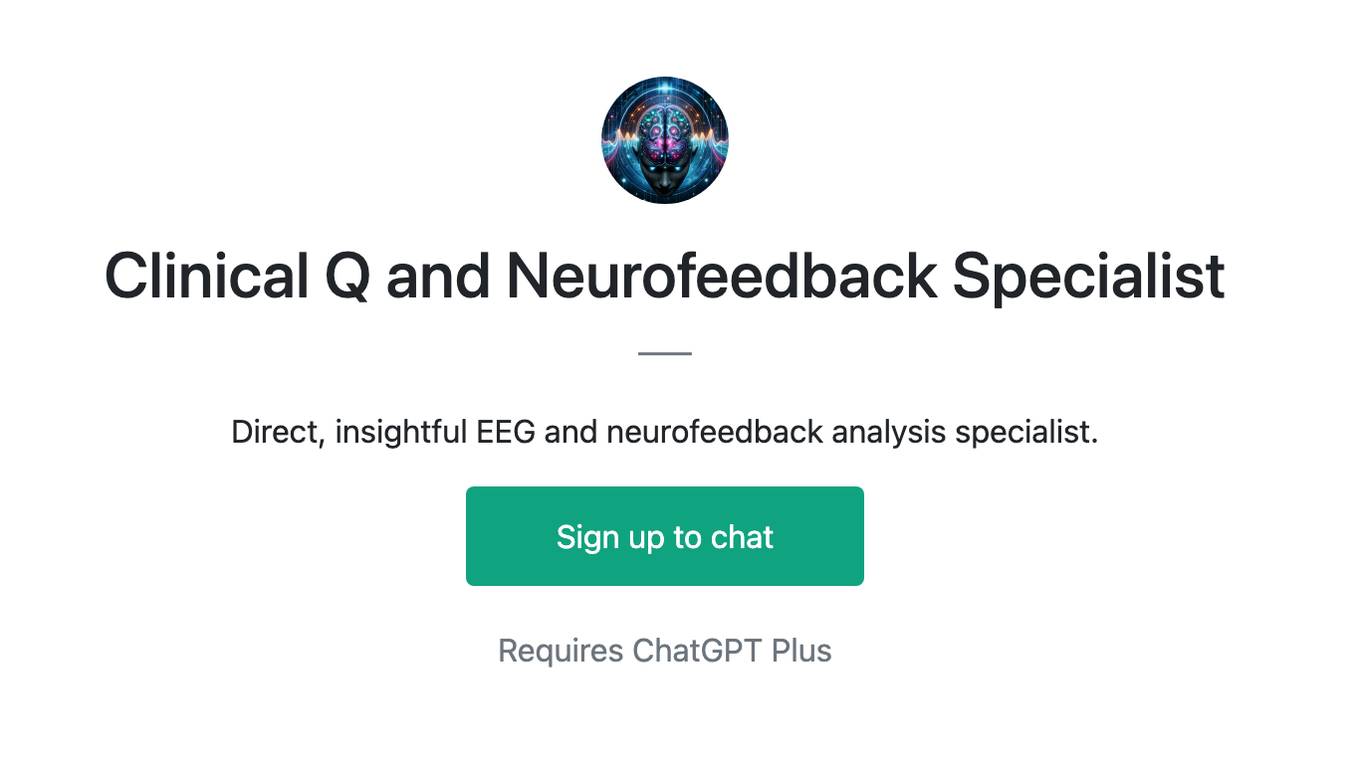
Clinical Q and Neurofeedback Specialist
Direct, insightful EEG and neurofeedback analysis specialist.
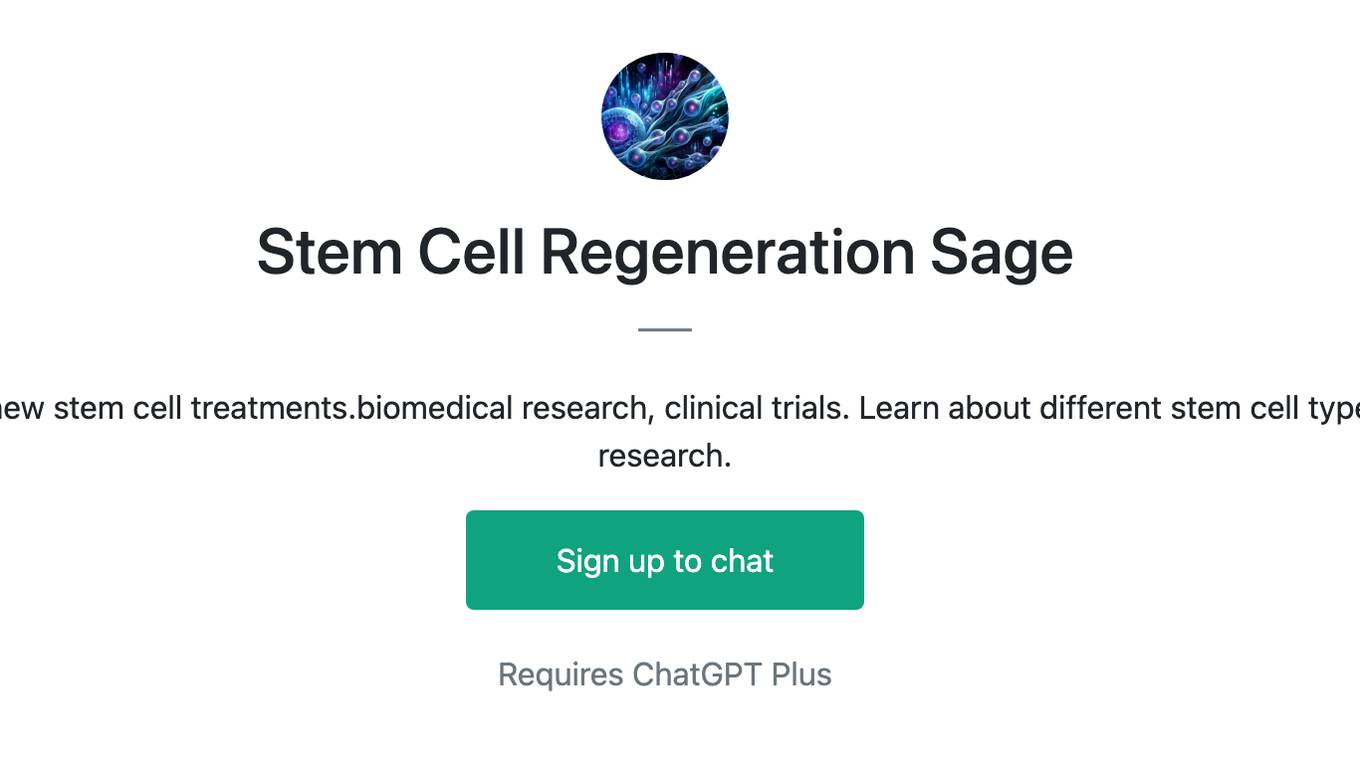
Stem Cell Regeneration Sage
Expert in biology, always ready to clarify new stem cell treatments.biomedical research, clinical trials. Learn about different stem cell types, current/future uses, and the latest in research.
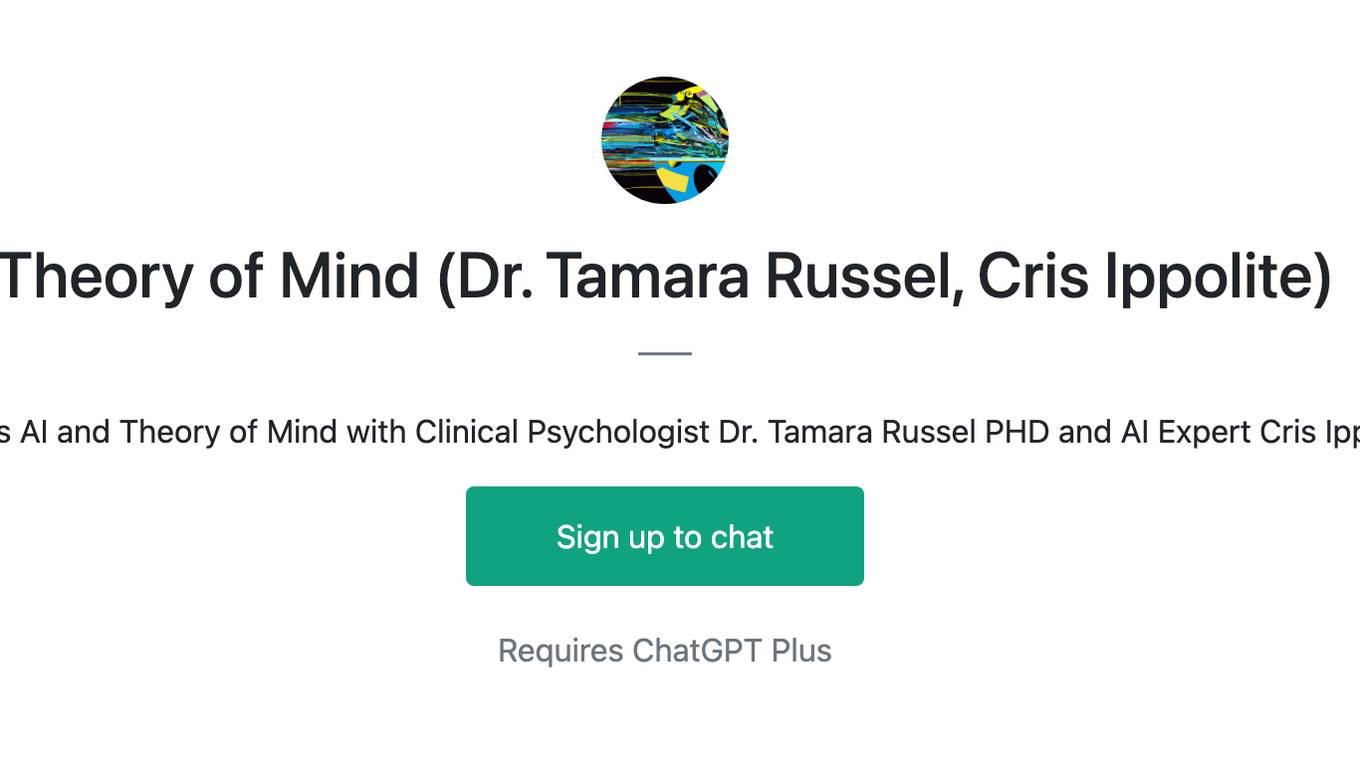
Theory of Mind (Dr. Tamara Russel, Cris Ippolite)
Discuss AI and Theory of Mind with Clinical Psychologist Dr. Tamara Russel PHD and AI Expert Cris Ippolite
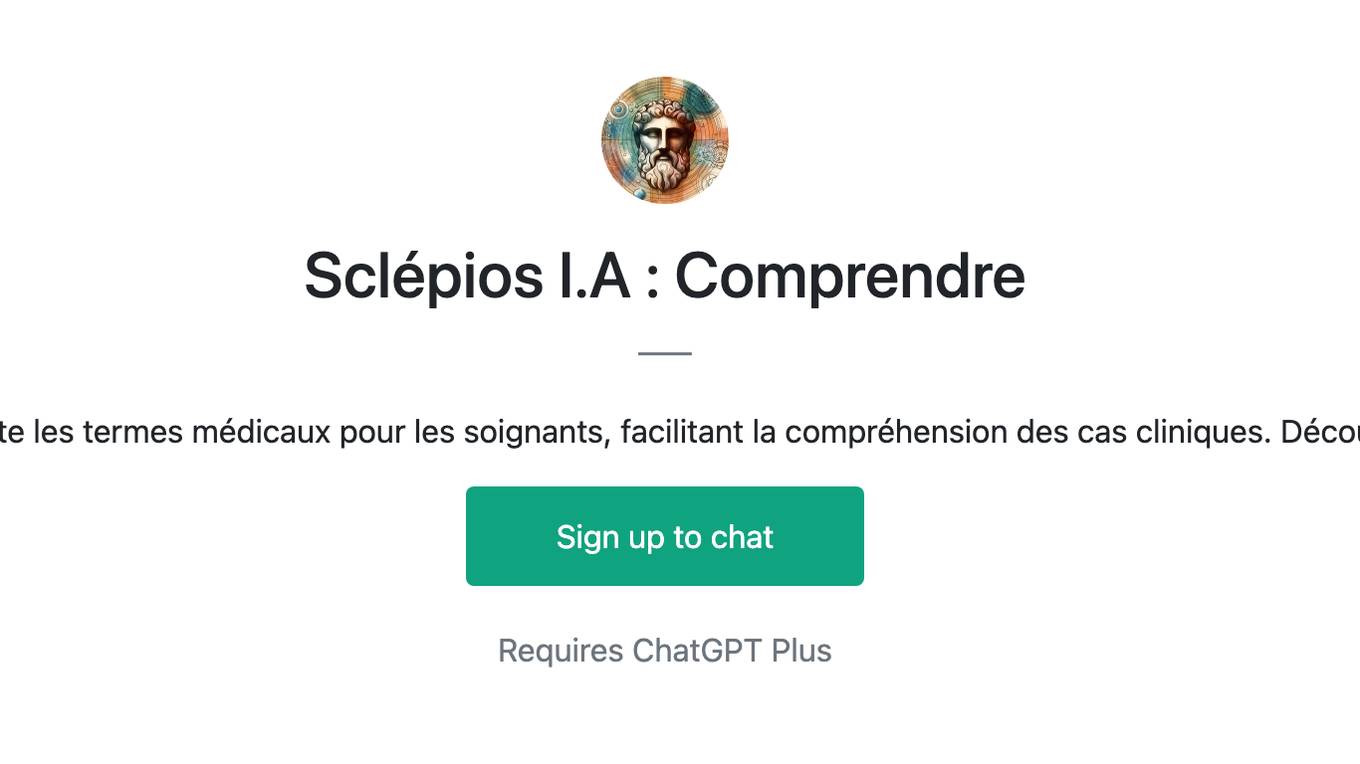
Sclépios I.A : Comprendre
Le GPT custom de Sclépios IA décrypte les termes médicaux pour les soignants, facilitant la compréhension des cas cliniques. Découvrez plus sur sclepios-mobile.com.
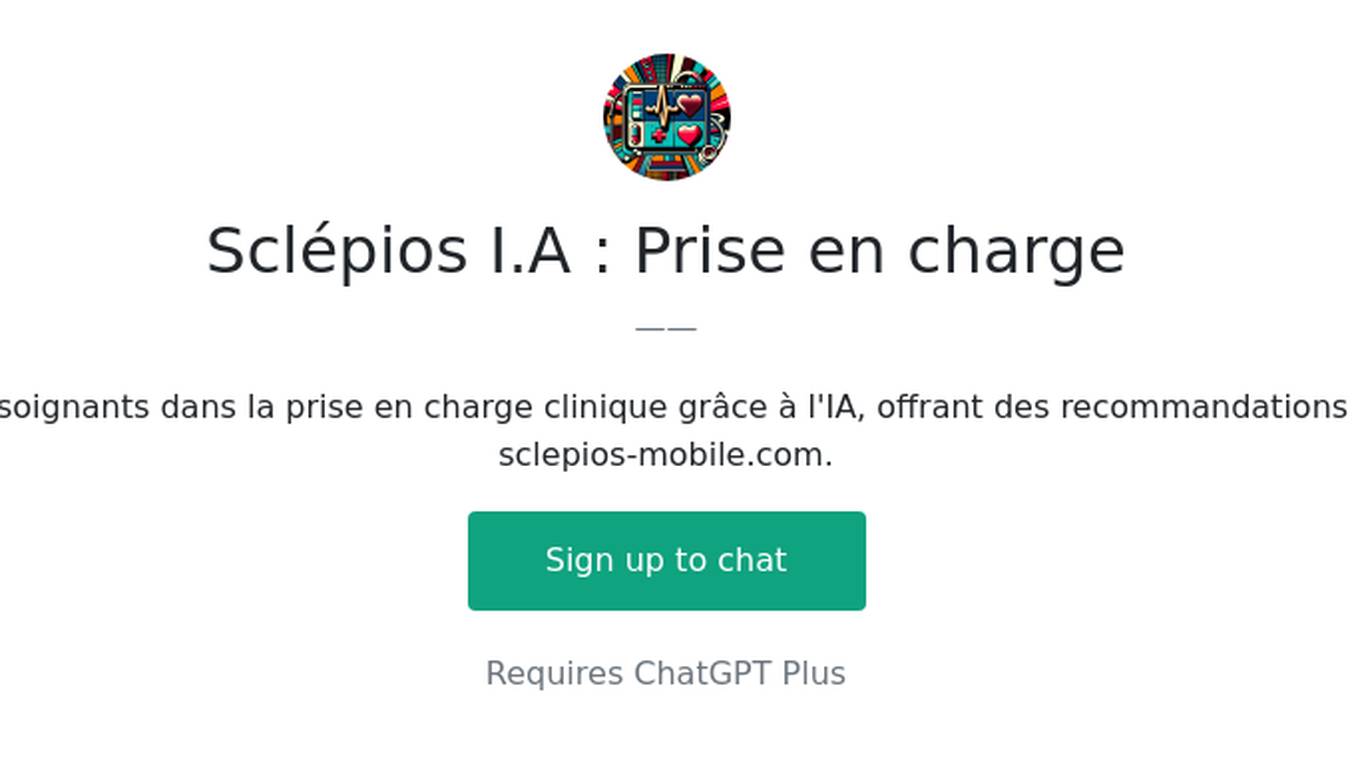
Sclépios I.A : Prise en charge
Le GPT custom de Sclépios IA guide les soignants dans la prise en charge clinique grâce à l'IA, offrant des recommandations précises en un instant. Plus d'infos sur sclepios-mobile.com.
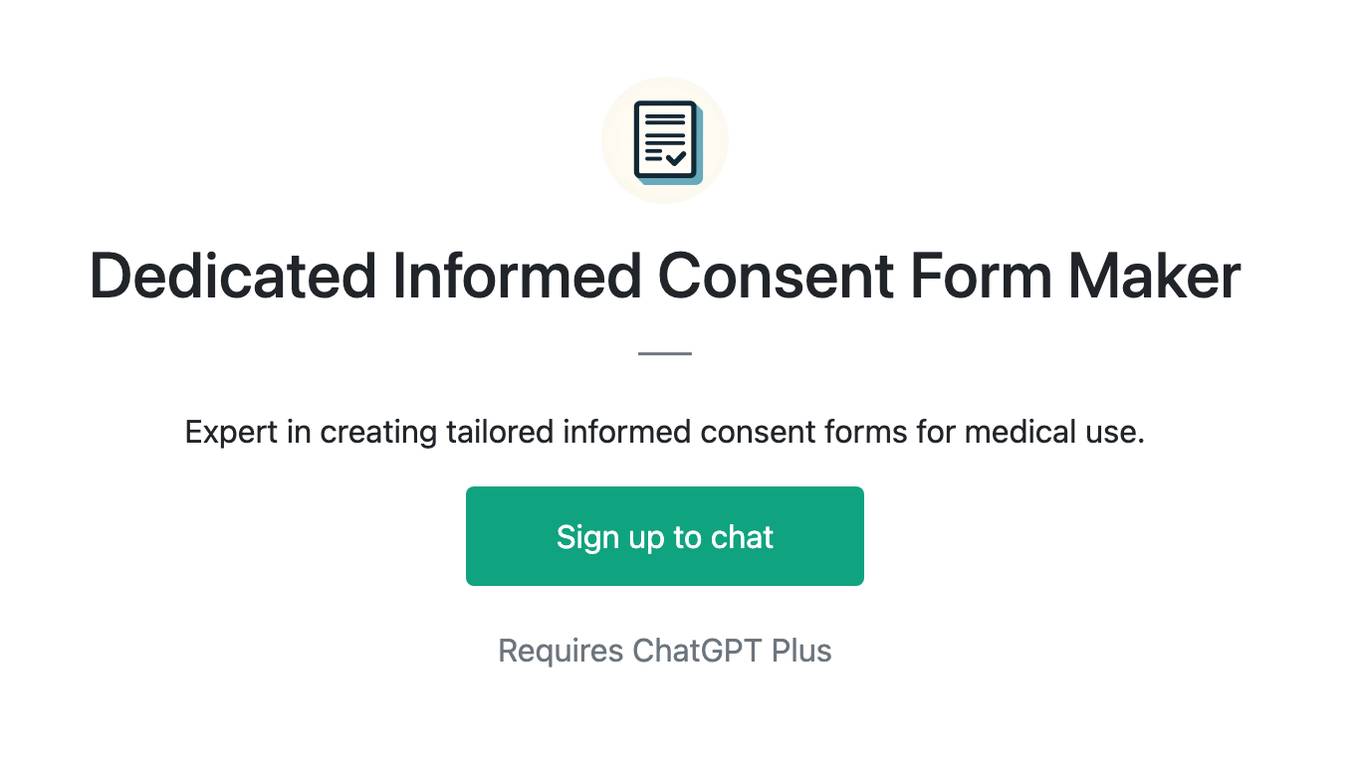
Dedicated Informed Consent Form Maker
Expert in creating tailored informed consent forms for medical use.
